1 Introduction
1.1 Overview
1.2 Definition of Test Scopes
1.2.1 Test Scope Automotive Ethernet
1.2.2 Test Scope TCP/IP Protocol Family
1.2.3 Test Scope Automotive Protocols
1.3 Version Control of Document
1.4 Change history between version 1 and 2
1.5 Feedback
1.6 References
1.7
2 Test Scope Layer 1 of Automotive Ethernet
2.1 Interoperability Tests
2.1.1 General
2.1.2 Link-up time
OABR_LINKUP_01: Link-up time - Trigger: Power on Link Partner
OABR_LINKUP_02: Link-up time - Trigger: Power on DUT
OABR_LINKUP_03: Link-up time - Trigger: Wake up DUT
2.1.3 Signal Quality
OABR_SIGNAL_01: Indicated signal quality for channel with decreasing quality
OABR_SIGNAL_02: Indicated signal quality for channel with increasing quality
2.1.4 Cable diagnostics
OABR_CABLE_01: Cable diagnostics for near and far end open
OABR_CABLE_02: Cable diagnostics for near and far end short
2.2 PMA
2.2.1 General
2.2.2 Transmitter Electrical Specifications
OABR_PMA_TX_01: Check the Transmitter outpout droop
OABR_PMA_TX_02: Check the Transmitter Timing Jitter in MASTER Mode
OABR_PMA_TX_03: Check the Transmit Clock Frequency
OABR_PMA_TX_04: Check the Transmitter Power Spectral Density (PSD)
OABR_PMA_TX_05: Check MDI return Loss
OABR_PMA_TX_06: Check MDI Mode conversion
OABR_PMA_TX_07: Check MDI Common Mode emission
OABR_PMA_TX_08: Check the Transmitter Distortion
2.2.3 Appendix 1A Transmitter Distortion Test.
3 Test Scope Layer 2 of Automotive Ethernet
3.1 Overview & Requirements for ECU Automotive Ethernet Switch Testing Test Scope
3.2 VLAN Testing
SWITCH_VLAN_01: VLAN Unicast Traffic Forwarding
SWITCH_VLAN_02: VLAN Broadcast Traffic Forwarding
SWITCH_VLAN_03: VLAN Multicast Traffic Forwarding
3.3 General
8021X__EAPoL_Authentication_positive
8021X__EAPoL_Authentication_negative
8021AE_MACsec_frames_forwarded
Port_Disabling
3.4 Address Learning
Address_Learning_read_ARL_table
Address_Learning_write_ARL_table
Address_Learning_with_untagged_frames_at_external_ports
Address_Learning_with_tagged_frames_at_external_ports
Address_Learning_at_internal_ports
3.5 Filtering of incoming frames
SWITCH_Policing_Information_external_ports
SWITCH_Policing_Information_internal_ports
3.6 Referenced TC 11 Tests
4 Test Scope TCP/IP Protocol Family
4.1 Prerequisites
4.2 Address Resolution Protocol (ARP)
4.2.1 General
Referenced specification
Simulated topologies
Required topology related configuration
Coverage
4.2.2 Parameters used in the tests
User defined configuration parameters for IUT
User defined configuration parameters for TESTER
4.2.3 Terminology used in Test Procedure
4.2.4 Test Cases ARP
4.2.4.1 Packet Generation
ARP_01: Static ARP entry (no ARP request)
ARP_02: Static ARP entry (ARP entry used)
ARP_03: ARP entry learned on ARP request (no ARP request)
ARP_04: ARP entry learned on ARP request (ARP entry used)
ARP_05: ARP entry learned on gratuitous ARP response (no ARP request)
ARP_06: ARP entry learned on gratuitous ARP response (ARP entry used)
ARP_07: ARP request sending (ARP request send on missing entry)
ARP_08: ARP request sending (Hardware Type check)
ARP_09: ARP request sending (Protocol Type check)
ARP_10: ARP request sending (Hardware Address Length check)
ARP_11: ARP request sending (Protocol Address Length check)
ARP_12: ARP request sending (Operation Code check)
ARP_13: ARP request sending (ARP Sender Hardware Address check)
ARP_14: ARP request sending (Source IP Address check)
ARP_15: ARP request sending (Destination IP Address correct)
4.2.4.2 Packet Reception
ARP_16: ARP request reception (ARP Target Hardware Address = 00:00:00:00:00:00)
ARP_17: ARP request reception (ARP Target Hardware Address = ff:ff:ff:ff:ff:ff:ff)
ARP_18: ARP request reception (ARP Target Hardware Address = random)
ARP_19: ARP request reception (ARP Target Hardware Address = Address of DUT)
ARP_20: ARP request reception (Hardware Type correct)
ARP_21: ARP request reception (Hardware Type wrong)
ARP_22: ARP response reception (Hardware Type wrong)
ARP_23: ARP request reception (Hardware Address Length correct)
ARP_24: ARP request reception (Hardware Address Length wrong)
ARP_25: ARP request response (Hardware Address Length wrong)
ARP_26: ARP request reception (Protocol Type correct)
ARP_27: ARP request reception (Protocol Type wrong)
ARP_28: ARP response reception (Protocol Type wrong)
ARP_29: ARP request reception (Protocol Address Length correct)
ARP_30: ARP request reception (Protocol Address Length wrong)
ARP_31: ARP response reception (Protocol Address Length wrong)
ARP_32: ARP entry update (Request/Request)
ARP_33: ARP entry update (Response/Response)
ARP_34: ARP entry update (Request/Response)
ARP_35: ARP entry update (Response/Request)
ARP_36: ARP request reception (Target Protocol Address correct)
ARP_37: ARP request reception (Target Protocol Address wrong)
ARP_38: ARP response reception (Target Protocol Address wrong)
ARP_39: ARP learning (request answers request)
ARP_40: ARP learning (response answers request)
ARP_41: ARP responding (response answers request)
ARP_42: ARP responding (no response to response)
ARP_43: ARP response (Ethernet Source Hardware Address check)
ARP_44: ARP response (Sender IP Address check)
ARP_45: ARP response (ARP Target Hardware Address check)
ARP_46: ARP response (Hardware Type check)
ARP_47: ARP response (Hardware Address Length check)
ARP_48: ARP timeout (idle)
ARP_49: ARP timeout (busy)
4.3 Internet Control Message Protocol Version 4 (ICMPv4)
4.3.1 General
4.3.1.1 Referenced specification
4.3.1.2 Simulated topologies
4.3.1.3 Required topology related configuration (prerequisites)
4.3.1.4 Coverage
4.3.2 Parameters used in the tests
4.3.3 Test cases ICMPv4
4.3.3.1 Error Handling
ICMPv4_ERROR_01: Avoid the infinite loop for ICMP message error
ICMPv4_ERROR_02: ICMP messages are only sent for fragment 0
ICMPv4_ERROR_03: ICMP messages are not sent when fragment not 0
ICMPv4_ERROR_04: ICMP messages are not sent for broadcast address
ICMPv4_ERROR_05: Uknown ICMP message types are ignored
4.3.3.2 ICMP Types
ICMPv4_TYPE_01: Send ICMP Destination Unreachable for unknown port
ICMPv4_TYPE_02: Discard packet with missing fragments
ICMPv4_TYPE_03: Send ICMP Time Exceeded message on fragmentation error
ICMPv4_TYPE_04: Do no send ICMP Time Exceeded message if missing fragment 0
ICMPv4_TYPE_05: Discard messages with header parameter problem
ICMPv4_TYPE_06: Sending of ICMP Prameter Problem message
ICMPv4_TYPE_07: ICMP Parameter Problem Message contents
ICMPv4_TYPE_08: ICMP Echo Reply message data field
ICMPv4_TYPE_09: ICMP Echo Reply message id and sequence field
ICMPv4_TYPE_10: ICMP checksum is checked
ICMPv4_TYPE_11: ICMP Timestamp Reply message content
ICMPv4_TYPE_12: ICMP Timestamp Reply message id and sequence field
ICMPv4_TYPE_16: Ensure that the DUT does not accept an ICMPv4 Information Request and does not generate a ICMPv4 Information Reply
Deprecated - ICMPv4_TYPE_17: Ensure that the DUT accepts an ICMPv4 Timestamp and generates a valid ICMPv4 Timestamp Reply
ICMPv4_TYPE_18: Send ICMP Destination Unreachable for unknown protocol
Deprecated - ICMPv4_TYPE_21: Ensure that the DUT does not generate an ICMPv4 Time Exceeded message when reassembly fails due to the absence of the first fragment
ICMPv4_TYPE_22: Send ICMP Echo Reply on receiving ICMP Echo Request
4.4 Internet Protocol Version 4 (IPv4)
4.4.1 General
4.4.1.1 Referenced specification
4.4.1.2 Simulated topologies
4.4.1.3 Required topology related configuration
4.4.1.4 Coverage
4.4.2 Parameters used in the tests
4.4.3 IPv4 Test cases
4.4.3.1 IPv4 Header
IPv4_HEADER_01: Ensure that the DUT generates an IPv4 Packet with a Total Length greater than or equal to 20.
IPv4_HEADER_02: Ensure that the DUT discards an IPv4 Packet with an invalid Header Length
IPv4_HEADER_03: Ensure that the DUT generates an IPv4 Packet with the Source Address being one of its IPv4 Addresses
IPv4_HEADER_04: Ensure that the DUT discards an IPv4 Packet with an incorrect Destination Address
IPv4_HEADER_05: IP Maximum datagram length check
IPv4_HEADER_08: IP Header length validation
IPv4_HEADER_09: IP Total Length validation
4.4.3.2 IPv4 Checksum
deprecated – IPv4_CHECKSUM_01: Ensure that the DUT generates an IPv4 Packet with a valid Header Checksum
IPv4_CHECKSUM_02: IP Checksum method validation on receiving
IPv4_CHECKSUM_04: IP Checksum method validation on sending
IPv4_CHECKSUM_05: IP Checksum method validation
4.4.3.3 IPv4 Time to Live
IPv4_TTL_01: A host MUST NOT send a datagram with a Time-to-Live (TTL) value of zero
Deprecated - IPv4_TTL_03: Ensure that the DUT decrements the TTL of a forwarded IPv4 Packet by at least 1
Deprecated - IPv4_TTL_04: Ensure that the DUT discards an IPv4 packet with a TTL of 0 if the IPv4 packet has to be forwarded
IPv4_TTL_05: Packets with 0 or 1 TTL are not discarded by hosts
4.4.3.4 IPv4 Version Number
IPv4_VERSION_01: Ensure that the DUT accepts an IPv4 Packet with a valid Version 4
IPv4_VERSION_03: Ensure that the DUT generates a IPv4 Packet with a valid Version 4
IPv4_VERSION_04: IP Version validation
4.4.3.5 IPv4 Addressing
IPv4_ADDRESSING_01: Ensure that the DUT receives an IPv4 Packet with a Destination Address being a Limited Broadcast Address
IPv4_ADDRESSING_02: Ensure that the DUT discards an IPv4 Packet with a Destination Address being a Directed Broadcast Address
IPv4_ADDRESSING_03: Ensure that the DUT discards an IPv4 Packet with a Destination Address being a Loop Back Address
4.4.3.6 IPv4 Fragments
IPv4_FRAGMENTS_01: IP Reconstruct fragments validation
IPv4_FRAGMENTS_02: IP Reconstruct fragments, negative test on id
IPv4_FRAGMENTS_03: IP Reconstruct fragments, negative test on source
IPv4_FRAGMENTS_04: IP Reconstruct fragments, negative test on protocol
IPv4_FRAGMENTS_05: IP send unfragmented data validation
4.4.3.7 IPv4 Reassembly
deprecated – IPv4_REASSEMBLY_01: Ensure that the DUT reassembles fragments of an IPv4 Packet
deprecated – IPv4_REASSEMBLY_02: Ensure that the DUT does not reassemble fragments of an IPv4 Packet with different IDs
deprecated - IPv4_REASSEMBLY_03: Ensure that the DUT does not reassemble fragments of an IPv4 Packet with different Protocols
IPv4_REASSEMBLY_04: Ensure that the DUT reassembles fragments of an IPv4 Packet received in the wrong order
deprecated - IPv4_REASSEMBLY_05: Ensure that the DUT discards a duplicate of an IPv4Fragment during the reassembly
IPv4_REASSEMBLY_06: Ensure that the DUT does not reassemble fragments of an IPv4 Packet if no first fragment is sent
IPv4_REASSEMBLY_07: Ensure that the DUT does not reassemble fragments of an IPv4 Packet if some IPv4 Fragments are missing
deprecated - IPv4_REASSEMBLY_08: Ensure that the DUT does not reassemble fragments of an IPv4 Packet if no last fragment is sent
IPv4_REASSEMBLY_09: Ensure that DUT discards IPv4 Packet MF = 1
IPv4_REASSEMBLY_10: IP Reassembly default time check
IPv4_REASSEMBLY_11: Check fragment with Large TTL value
IPv4_REASSEMBLY_12: Check fragment with Low TTL value
IPv4_REASSEMBLY_13: IP Fragments overlap check
4.4.3.8 IPv4 Options
IPv4_OPTIONS_01: Multiple End of Options check
IPv4_OPTIONS_02: Multiple No Operation option check
IPv4_OPTIONS_03: Multiple No Operation and End of Option check
IPv4_OPTIONS_04: Security Option check
IPv4_OPTIONS_05: Overflow Bit in timestamp option check
IPv4_OPTIONS_06: Timestamp value check
IPv4_OPTIONS_07: Ttimestamp value, internet address and sequence check
IPv4_OPTIONS_08: Relation between timestamp & its own address
IPv4_OPTIONS_09:Relation between timestamp & its own address, negative
IPv4_OPTIONS_10: Room for timestamp check
IPv4_OPTIONS_11: Overflow bits validation
IPv4_OPTIONS_12: Check room for timestamp
IPv4_OPTIONS_13: Validate overflow bits
IPv4_OPTIONS_14: Timestamp option occurrence check
4.5 Dynamic configuration of IPv4 Link Local Address
4.5.1 General
4.5.2 Simulated topologies
4.5.3 Required topology related configuration
4.5.4 Coverage
4.5.5 Parameters/constants used in the tests
4.5.6 Tests
4.5.6.1 Introduction
IPv4_AUTOCONF_INTRO_01: Link local address configurability condition (in presence of operable routable address)
IPv4_AUTOCONF_INTRO_02: Link local address preference condition (in presense of operable routable address)
IPv4_AUTOCONF_INTRO_03: Link local address (usage continuation condition)
IPv4_AUTOCONF_INTRO_04: Link local address (usage for new communication)
IPv4_AUTOCONF_INTRO_05: Link local address configurability condition-I (in absense of operable routable address)
IPv4_AUTOCONF_INTRO_06: Link local address configurability condition-II (in absense of operable routable address)
4.5.6.2 Address Selection, Defense and Delivery
IPv4_AUTOCONF_ADDRESS_SELECTION_01: Future use of first 256 and last 256 addresses in the 169.254/16 prefix
IPv4_AUTOCONF_ADDRESS_SELECTION_02: Use of persistent storage for each interface record
IPv4_AUTOCONF_ADDRESS_SELECTION_03: Need for probing to detect address already in use
IPv4_AUTOCONF_ADDRESS_SELECTION_04: Need for not probing periodically to detect address already in use
IPv4_AUTOCONF_ADDRESS_SELECTION_05: Sender hardware address field usage
IPv4_AUTOCONF_ADDRESS_SELECTION_06: Sender IP address setting
IPv4_AUTOCONF_ADDRESS_SELECTION_07: Target hardware address setting and receive check
IPv4_AUTOCONF_ADDRESS_SELECTION_08: Target IP address field setting
IPv4_AUTOCONF_ADDRESS_SELECTION_09: Probing time interval and packet count - I
IPv4_AUTOCONF_ADDRESS_SELECTION_10: Probing time interval and packet count - II
IPv4_AUTOCONF_ADDRESS_SELECTION_11: Probing and reception of ARP packet - I
IPv4_AUTOCONF_ADDRESS_SELECTION_12: Probing and reception of ARP packet - II
IPv4_AUTOCONF_ADDRESS_SELECTION_13: Probing and reception of ARP packet - III
IPv4_AUTOCONF_ADDRESS_SELECTION_14: Conflict resolution - I
IPv4_AUTOCONF_ADDRESS_SELECTION_15: Conflict resolution - II
IPv4_AUTOCONF_ADDRESS_SELECTION_16: IPv4 Link-Local address claim condition - I
4.5.6.3 Announcing an Address
IPv4_AUTOCONF_ANNOUNCING_01: An ARP announcement - I
IPv4_AUTOCONF_ANNOUNCING_02: An ARP announcement - II
IPv4_AUTOCONF_ANNOUNCING_03: An ARP announcement - III
IPv4_AUTOCONF_ANNOUNCING_04: An ARP announcement - IV
IPv4_AUTOCONF_ANNOUNCING_05: Announcing claimed address
IPv4_AUTOCONF_ANNOUNCING_06: Announcing claimed address (interval and packet count)
IPv4_AUTOCONF_ANNOUNCING_07: Announcing claimed address (non-conflict)
4.5.6.4 Conflict Detection and Defense
IPv4_AUTOCONF_CONFLICT_01: Conflicting ARP packet reception
IPv4_AUTOCONF_CONFLICT_02: Defending own address - I
IPv4_AUTOCONF_CONFLICT_03: Defending own address - II
IPv4_AUTOCONF_CONFLICT_04: Defending own address - III
IPv4_AUTOCONF_CONFLICT_05: Defending own address - IV
IPv4_AUTOCONF_CONFLICT_06: Link local address (usage cease condition - I)
IPv4_AUTOCONF_CONFLICT_07: Link local address (usage cease condition - II)
IPv4_AUTOCONF_CONFLICT_08: Link local address (usage cease condition - III)
IPv4_AUTOCONF_CONFLICT_09: Link local address (usage cease condition - IV)
IPv4_AUTOCONF_CONFLICT_10: Receiving a conflicting ARP packet
IPv4_AUTOCONF_CONFLICT_11: ARP packets containing (Link- Local 'sender IP address') rule - I
IPv4_AUTOCONF_CONFLICT_12: ARP packets containing (Link- Local 'sender IP address') rule - II
4.5.6.5 Forwarding Rules
IPv4_AUTOCONF_FORWARDING_01: Forwarding Rules (Destination address is in the 169.254/16 prefix - I)
IPv4_AUTOCONF_FORWARDING_02: Forwarding Rules (Destination address is in the 169.254/16 prefix - II)
IPv4_AUTOCONF_FORWARDING_03: Forwarding Rules (Destination address is in the 169.254/16 prefix - III)
IPv4_AUTOCONF_FORWARDING_04: Forwarding Rules (Host sending the packet with an IPv4 Link-Local source address - I)
IPv4_AUTOCONF_FORWARDING_05: Forwarding Rules (Host sending the packet with an IPv4 Link-Local source address - II)
IPv4_AUTOCONF_FORWARDING_06: Forwarding Rules (Host sending the packet with an IPv4 Link-Local source address - III)
IPv4_AUTOCONF_FORWARDING_07: Forwarding Rules (Destination address is a unicast address outside the 169.254/16 prefix)
IPv4_AUTOCONF_FORWARDING_08: Forwarding Rules (host MUST NOT send a packet with an IPv4 Link-Local destination address to any router for forwarding)
4.5.6.6 Link-Local Packets Are Not Forwarded
IPv4_AUTOCONF_LINKLOCAL_PACKETS_01: Link-Local Packets Are Not Forwarded (TTL)
IPv4_AUTOCONF_LINKLOCAL_PACKETS_02: Link-Local Packets Are Not Forwarded - (Source and/or destination address is in the 169.254/16 prefix)
IPv4_AUTOCONF_LINKLOCAL_PACKETS_03: Link-Local Packets Are Not Forwarded (Router response)
IPv4_AUTOCONF_LINKLOCAL_PACKETS_04: Link-Local Packets Are Not Forwarded (router or other host response for addresses in the 169.254/16 prefix)
4.5.6.7 Interaction with Hosts with Routable Addresses
IPv4_AUTOCONF_ROUTABLE_ADDRESSES_01: Host acquires a routable address
IPv4_AUTOCONF_ROUTABLE_ADDRESSES_02: Interaction with Hosts with Routable Addresses
4.5.6.8 Healing of Network Partitions
IPv4_AUTOCONF_NETWORK_PARTITIONS_01: Healing of Network Partitions Hosts
4.6 User Datagram Protocol (UDP)
4.6.1 General
4.6.2 Simulated topologies
4.6.3 Required topology related configuration
4.6.4 Parameters used in the tests
4.6.5 Tests
4.6.5.1 UDP Message Format
Deprecated – UDP_MessageFormat_01: To verify that IUT generates an UDP packet containing a well-formed UDP header.
UDP_MessageFormat_02: To verify that IUT accepts an UDP packet containing a well-formed UDP header.
4.6.5.2 UDP Port Handling
Deprecated – UDP_PortHandling_01: To verify that the DUT accepts the datagram in case UDP Header has a non-zero source port.
Deprecated – UDP_PortHandling_02: To verify that the DUT accepts the datagram in case UDP Header has a source port with a value equal to zero.
Deprecated – UDP_PortHandling_03: To verify that the DUT accepts the datagram in case UDP Header has a specific source port value.
Deprecated – UDP_PortHandling_04: To verify that the DUT discards a datagram in case UDP Header has a non-acceptable source port value.
4.6.5.3 UDP Datagram Length
UDP_DatagramLength_01: To verify that IUT discards a truncated UDP datagram.
Deprecated – UDP_DatagramLength_02: To verify that IUT discards a UDP datagram in case datagram total length less than 8.
Deprecated – UDP_DatagramLength_03: To verify that IUT accepts an UDP datagram in case datagram total length greater than 8.
Deprecated – UDP_DatagramLength_04: To verify that IUT discards a UDP datagram in case datagram total length equal to 0.
Deprecated – UDP_DatagramLength_05: To verify that IUT discards a UDP datagram in case datagram total length greater than the size of the datagram.
Deprecated – UDP_DatagramLength_06: To verify that IUT discards a UDP datagram in case datagram total length is less than the size of the datagram.
Deprecated – UDP_DatagramLength_07: To verify that IUT discards an UDP datagram in case datagram total length is set to maximum number allowed by the field.
4.6.5.4 UDP Padding
Deprecated – UDP_Padding_01: To verify that IUT generates UDP datagram with odd size of payload and adds padding at the end.
UDP_Padding_02: To verify that IUT generates UDP datagram with even size of payload and no padding at the end.
4.6.5.5 UDP Fields
UDP_FIELDS_01: Fields – Specify Source Port
UDP_FIELDS_02: Fields – Specify Destination Port
UDP_FIELDS_03: Fields - Accept Source Port set to zero
UDP_FIELDS_04: Fields - Same Destination Port with Different IP Address (send)
UDP_FIELDS_05: Fields - Same Port with Different IP Address (receive and send)
UDP_FIELDS_06: Fields - Total Length
UDP_FIELDS_07: Fields - Total Length (no data)
UDP_FIELDS_08: Fields - Total Length (less than 8 bytes)
UDP_FIELDS_09: Fields - Total Length (equal to zero)
UDP_FIELDS_10: Fields - Total Length (greater than actual)
UDP_FIELDS_12: Fields - Total Length (maximum)
UDP_FIELDS_13: Fields - Checksum (with padding)
UDP_FIELDS_14: Fields - Checksum (no padding)
UDP_FIELDS_15: Fields - Checksum (incorrect)
UDP_FIELDS_16: Fields - Checksum (zero checksum)
deprecated – UDP_FIELDS_17: Fields - Checksum (no checksum)
deprecated – UDP_FIELDS_18: Fields - Checksum (controlled)
4.6.5.6 User Interface
UDP_USER_INTERFACE_01: User Interface - New Receive Port
UDP_USER_INTERFACE_02: User Interface - Data octets
UDP_USER_INTERFACE_03: User Interface – Return Source Port
UDP_USER_INTERFACE_04: User Interface – Return Source IP Address
UDP_USER_INTERFACE_05: User Interface - Source Port (to be sent)
UDP_USER_INTERFACE_06: User Interface - Destination Port (to be sent)
UDP_USER_INTERFACE_07: User Interface - Source IP Address (to be sent)
UDP_USER_INTERFACE_08: User Interface - Destination Address (to be sent)
4.6.5.7 IP Interface
UDP_IP_INTERFACE_01: IP Interface – TTL Field
4.6.5.8 Introduction
UDP_INTRODUCTION_01: Introduction – Broadcast Destination Address
UDP_INTRODUCTION_02: Introduction – Multicast Destination Address
UDP_INTRODUCTION_03: Introduction – Pending Listen Call
4.6.5.9 IP Option
UDP_IP_OPTION_01: IP Option - Time Stamp Option (pass any option)
UDP_IP_OPTION_02: IP Option - Time Stamp Option (to be sent)
4.6.5.10 UDP Multihoming
UDP_MULTI_HOMING_01: UDP Multihoming - appropriate source address
UDP_MULTI_HOMING_02: UDP Multihoming - specific destination address
4.6.5.11 Invalid Addresses
UDP_INVALID_ADDRESSES_01: Invalid Addresses - multicast source address
UDP_INVALID_ADDRESSES_02: Invalid Addresses - broadcast source address
4.6.5.12 UDP/Application layer interface
UDP_APP_INTERFACE_01: UDP/Application layer interface - TTL
UDP_APP_INTERFACE_02: UDP/Application layer interface - TOS
4.6.5.13 ICMP Messages
UDP_ICMP_MESSAGES_01: ICMP Messages – Error
4.7 Dynamic Host configuration Protocol Version 4 (DHCPv4) Server
4.8 Dynamic Host configuration Protocol Version 4 (DHCPv4) Client
4.8.1 General
4.8.2 Simulated topologies
4.8.3 Required topology related configuration
4.8.4 Coverage
4.8.5 Parameters and constants used in the tests
4.8.6 Tests
5.7.6.1 Summary
DHCPv4_CLIENT_SUMMARY_01: Setup Verification (DHCP Client Listens on UDP port 68)
DHCPv4_CLIENT_SUMMARY_02: Discard DHCP Offsers whose xid is not the one of the latest DHCPDISCOVER sent
DHCPv4_CLIENT_SUMMARY_03: Receive DHCP messages with an 'options' field of at least length 312 octets
DHCPv4_CLIENT_SUMMARY_04: The flags field must be set to zero by clients
4.8.6.1 The Client-Server Protocol
DHCPv4_CLIENT_PROTOCOL_01: First four octets of the 'options' field of the DHCP message
DHCPv4_CLIENT_PROTOCOL_02: "DHCP message type" option present in DHCPDISCOVER Message.
DHCPv4_CLIENT_PROTOCOL_03: "DHCP message type" option present in DHCPREQUEST Message.
DHCPv4_CLIENT_PROTOCOL_04: "DHCP message type" option present in DHCPRELEASE Message.
DHCPv4_CLIENT_PROTOCOL_05: "DHCP message type" option present in DHCPDECLINE Message.
DHCPv4_CLIENT_PROTOCOL_06: "DHCP message type" option present in DHCPINFORM Message.
4.8.6.2 Client-server interaction - allocating a network address
DHCPv4_CLIENT_ALLOCATING_01: Broadcast DHCPDISCOVER message on its local physical subnet
DHCPv4_CLIENT_ALLOCATING_02: Send DHCPDISCOVER (may suggest a value for lease time)
DHCPv4_CLIENT_ALLOCATING_03: Send DHCPREQUEST - must include the 'server identifier'
DHCPv4_CLIENT_ALLOCATING_04: Send DHCPREQUEST - header value 'secs' field
DHCPv4_CLIENT_ALLOCATING_05: Send DHCPREQUEST to the same IP broadcast address
DHCPv4_CLIENT_ALLOCATING_06: Send DHCPDISCOVER message - timeout and resend on no DHCPOFFER messages
DHCPv4_CLIENT_ALLOCATING_07: Send DHCPDECLINE Message and restart configuration process
DHCPv4_CLIENT_ALLOCATING_08: Wait minimum 10 seconds before restarting configuration
DHCPv4_CLIENT_ALLOCATING_09: Receive DHCPNAK - restart the configuration process
DHCPv4_CLIENT_ALLOCATING_10: Resend DHCPREQUEST message if timeout on no DHCPACK or a DHCPNAK message
DHCPv4_CLIENT_ALLOCATING_11: Notify the user that the initialization process has failed and is restarting
DHCPv4_CLIENT_ALLOCATING_12: Send DHCPRELEASE message
DHCPv4_CLIENT_ALLOCATING_13: Send DHCPRELEASE - 'client identifier' or 'chaddr' fields and network address
DHCPv4_CLIENT_ALLOCATING_14: Consisent use of 'client identifier' field
4.8.6.3 Client-server interaction - reusing a previously allocated network address
DHCPv4_CLIENT_REUSING_01: Restarts initialization process retransmission algorithm timeout
DHCPv4_CLIENT_REUSING_02: Reusing a previously allocated network address
DHCPv4_CLIENT_REUSING_03: Broadcast a DHCPREQUEST if reusing a previously allocated network address
DHCPv4_CLIENT_REUSING_04: Reusing a previously allocated network address - include 'requested IP address' option
DHCPv4_CLIENT_REUSING_05: If not received an adress do not fill in the 'ciaddr' field
DHCPv4_CLIENT_REUSING_06: Use same 'client identifier' in all subsequent messages DHCPREQUEST message
DHCPv4_CLIENT_REUSING_07: Respond to ICMP Echo Request messages when reusing address
DHCPv4_CLIENT_REUSING_08: On DHCPNAK fo not reuse network address and request new using non abbreviated process
4.8.6.4 Client parameters in DHCP
DHCPv4_CLIENT_PARAMETERS_01: Interpreration of time values
DHCPv4_CLIENT_PARAMETERS_02: Default value for TTL
DHCPv4_CLIENT_PARAMETERS_03: Override value for TTL
DHCPv4_CLIENT_PARAMETERS_04: Use same parameters in DHCPREQUEST message as in DHCPDISCOVER
DHCPv4_CLIENT_PARAMETERS_05: Set 'maximum DHCP message size' option
DHCPv4_CLIENT_PARAMETERS_06: Send DHCPDISCOVER message - include the 'IP address lease time' option
4.8.6.5 DHCP usage
DHCPv4_CLIENT_USAGE_01: Use of DHCP in clients with multiple interfaces
DHCPv4_CLIENT_USAGE_02: Use DHCP at system boot time
DHCPv4_CLIENT_USAGE_03: Revert from unicast to multicast on timeout
4.8.6.6 Constructing and sending DHCP messages
DHCPv4_CLIENT_CONSTRUCTING_MESSAGES_01: The last option must always be the 'end' option
DHCPv4_CLIENT_CONSTRUCTING_MESSAGES_02: Use the IP address provided in the 'server identifier' option for any unicast requests
DHCPv4_CLIENT_CONSTRUCTING_MESSAGES_03: Source IP address field of DHCPDISCOVER Message is 0
DHCPv4_CLIENT_CONSTRUCTING_MESSAGES_04: Source IP address field of DHCPREQUEST Message is 0
DHCPv4_CLIENT_CONSTRUCTING_MESSAGES_05: Parse 'sname' field when Option Overload is present
DHCPv4_CLIENT_CONSTRUCTING_MESSAGES_06: Parse 'file' field when Option Overload is present
DHCPv4_CLIENT_CONSTRUCTING_MESSAGES_07: Do not parse 'file' field as Options when Option Overload is not present)
DHCPv4_CLIENT_CONSTRUCTING_MESSAGES_08: Check 'sname' field when 1st octet is not the start of the option
DHCPv4_CLIENT_CONSTRUCTING_MESSAGES_09: Check 'sname' field in absence of 'end' option
DHCPv4_CLIENT_CONSTRUCTING_MESSAGES_10: Check 'file' field in absence of 'end' option
DHCPv4_CLIENT_CONSTRUCTING_MESSAGES_11: The 'sname' field and 'pad' options
DHCPv4_CLIENT_CONSTRUCTING_MESSAGES_12: The retransmission delay should be doubled with subsequent retransmissions
DHCPv4_CLIENT_CONSTRUCTING_MESSAGES_13: Retransmission strategy using a randomized exponential backoff algorithm
DHCPv4_CLIENT_CONSTRUCTING_MESSAGES_14: A client may choose a different random initial 'xid' after reboot
4.8.6.7 DHCPREQUEST message
DHCPv4_CLIENT_REQUEST_01: DHCPREQUEST message - the 'ciaddr' option
DHCPv4_CLIENT_REQUEST_02: DHCPREQUEST message - requested IP address
DHCPv4_CLIENT_REQUEST_03: DHCPREQUEST generated during INIT-REBOOT state: 'server identifier' option
DHCPv4_CLIENT_REQUEST_04: DHCPREQUEST generated during INIT-REBOOT state: 'requested IP address' option
DHCPv4_CLIENT_REQUEST_05: DHCPREQUEST generated during INIT-REBOOT state: 'ciaddr' option
DHCPv4_CLIENT_REQUEST_06: DHCPREQUEST generated during RENEWING state: 'server identifier' option
DHCPv4_CLIENT_REQUEST_07: DHCPREQUEST generated during RENEWING state: 'requested IP address' option
DHCPv4_CLIENT_REQUEST_08: DHCPREQUEST generated during RENEWING state: 'ciaddr' option
DHCPv4_CLIENT_REQUEST_09: DHCPREQUEST generated during REBINDING state: 'server identifier' option
DHCPv4_CLIENT_REQUEST_10: DHCPREQUEST generated during REBINDING state: 'requested IP address' option
DHCPv4_CLIENT_REQUEST_11: DHCPREQUEST generated during REBINDING state: 'ciaddr' option
DHCPv4_CLIENT_REQUEST_12: DHCPREQUEST generated during REBINDING state: use IP broadcast address
4.8.6.8 Initialization and allocation of network address
DHCPv4_CLIENT_INITIALIZATION_ALLOCATION_01: Random time between to desynchronize the use of DHCP at startup
DHCPv4_CLIENT_INITIALIZATION_ALLOCATION_02: INIT state and DHCPDISCOVER messages
DHCPv4_CLIENT_INITIALIZATION_ALLOCATION_03: INIT state and forms a DHCPDISCOVER message - the 'chaddr' field
DHCPv4_CLIENT_INITIALIZATION_ALLOCATION_04: Verify 'xid' of an arriving DHCPOFFER message
DHCPv4_CLIENT_INITIALIZATION_ALLOCATION_05: During Initialization discard arriving DHCPACK messages
DHCPv4_CLIENT_INITIALIZATION_ALLOCATION_06: The DHCPREQUEST message contains the same 'xid' as the DHCPOFFER message
DHCPv4_CLIENT_INITIALIZATION_ALLOCATION_07: Lease expiration time value
DHCPv4_CLIENT_INITIALIZATION_ALLOCATION_08: Check the suggested address to ensure it is not in use
DHCPv4_CLIENT_INITIALIZATION_ALLOCATION_09: If address is in use send a DHCPDECLINE message to the server
DHCPv4_CLIENT_INITIALIZATION_ALLOCATION_10: Broadcast an ARP reply to announce the client's new IP
4.8.6.9 Initialization with an externally assigned network address
DHCPv4_CLIENT_INITIALIZATION_EXTERNAL_01: The client SHOULD NOT request lease time parameters
DHCPv4_CLIENT_INITIALIZATION_EXTERNAL_02: Send DHCPINFORM to the DHCP server if it knows the server's address
DHCPv4_CLIENT_INITIALIZATION_EXTERNAL_03: Broadcasts to the limited (all 1s) address
4.8.6.10 Reacquisition and expiration
DHCPv4_CLIENT_REACQUISITION_01: RENEWING state - send unicast DHCPREQUEST message
DHCPv4_CLIENT_REACQUISITION_02: On DHCPACK timeout move to REBINDING state and send DHCPREQUEST broadcast
DHCPv4_CLIENT_REACQUISITION_03: Reacquisition and expiration T1 defaults to (0.5 * duration_of_lease)
DHCPv4_CLIENT_REACQUISITION_04: Reacquisition and expiration T2 defaults to (0.875 * duration_of_lease)
DHCPv4_CLIENT_REACQUISITION_05: Wait time for RENEWING state
DHCPv4_CLIENT_REACQUISITION_06: Wait time for REBINDING state
DHCPv4_CLIENT_REACQUISITION_07: Stop network processing after lease time expires
DHCPv4_CLIENT_REACQUISITION_08: Request network initialization parameters after lease time expires
DHCPv4_CLIENT_REACQUISITION_09: Continue network processing on reallocating same address
DHCPv4_CLIENT_REACQUISITION_10: Do not use old address if new address is given
4.9 Transmisison Control Protocol (TCP)
4.9.1 General
4.9.2 Simulated topologies
4.9.3 Required topology related configuration
4.9.4 Parameters used in the tests
4.9.5 Upper Tester Procedures
4.9.6 Tests
4.9.6.1 Connection Establishment and Basic Exercising of the State Machine
TCP_BASICS_01: [listen] SYN -> SYN/ACK [syn_recv]
TCP_BASICS_02: [syn_recv] ACK -> [established]
TCP_BASICS_03: [established] FIN -> ACK [close_wait]
TCP_BASICS_04: [closed] data(no ack, no rst) -> RST(seq 0) [closed]
TCP_BASICS_05: [closed] data(ack, no rst) -> RST(seq <- ack) [closed]
TCP_BASICS_06: [closed] open -> syn
TCP_BASICS_07: [syn_sent] SYN/ACK -> ACK [established]
TCP_BASICS_08: [established | syn_rcvd | close_wait ] close -> FIN […]
TCP_BASICS_09: [last_ack] ACK of FIN -> [closed]
TCP_BASICS_10: [finwait-1 | finwait-2] FIN -> ACK
TCP_BASICS_11: [finwait-2 -> time_wait] delay(2*MSL) -> [closed]
TCP_BASICS_12: [closing -> time_wait] delay(2*MSL) -> [closed]
TCP_BASICS_13: [finwait-2 -> time_wait] delay(<2*MSL) -> no change yet
TCP_BASICS_14: [closing -> time_wait] delay(<2*MSL) -> no change yet
TCP_BASICS_15: [finwait-1 | finwait-2] DATA -> ACK (MAY)
TCP_BASICS_16: [syn-sent | close-wait | closing | last-ack | time-wait] DATA -> ignore
TCP_BASICS_17: Simultaneous Open Call
4.9.6.2 Processing and Generating TCP Checksums
TCP_CHECKSUM_01: Receiver Check: checksum ok
TCP_CHECKSUM_02: Receiver Check: checksum not ok
TCP_CHECKSUM_03: Sender compute checksum
TCP_CHECKSUM_04: Use clock-driven ISN selection
4.9.6.3 Processing Unacceptable Acknowledgments and Out of Window Sequence Numbers
TCP_UNACCEPTABLE_01: [syn-recv] RST -> [listen] (passive open)
TCP_UNACCEPTABLE_02: [syn-recv] RST out-of-wdw -> [syn-recv]
TCP_UNACCEPTABLE_03: [syn-recv] unacceptable ACK -> RST [syn-recv]
TCP_UNACCEPTABLE_04: [established] out-of-wdw SEQ / unacceptable ACK -> empty msg w/ SEQ [established]
TCP_UNACCEPTABLE_05: [listen] unacceptable ACK -> RST [listen]
TCP_UNACCEPTABLE_06: [established] out-of-wdw SYN -> ACK (seq) [established]
TCP_UNACCEPTABLE_07: [listen] old SYN/ACK -> RST [listen]
TCP_UNACCEPTABLE_08: [syn-sent] unacceptable ACK -> RST(seq)
TCP_UNACCEPTABLE_09: [finwait-1] out-of-wdw SEQ | unacceptable ACK -> ACK (seq, ack) [finwait-1]
TCP_UNACCEPTABLE_10: [finwait-2] out-of-wdw SEQ | unacceptable ACK -> ACK (seq, ack) [finwait-2]
TCP_UNACCEPTABLE_11: [closing] out-of-wdw SEQ | unacceptable ACK -> ACK (seq, ack) [closing]
TCP_UNACCEPTABLE_12: [last-ack] out-of-wdw SEQ | unacceptable ACK -> ACK (seq, ack) [last-ack]
TCP_UNACCEPTABLE_13: [time-wait] out-of-wdw SEQ | unacceptable ACK -> ACK (seq, ack) [time-wait]
TCP_UNACCEPTABLE_14: [close-wait] out-of-wdw SEQ | unacceptable ACK -> ACK (seq, ack) [close-wait]
4.9.6.4 Processing TCP OPEN Calls Received from the Application Layer
TCP_CALL_OPEN_01: Open: Active Open w/ unspec socket -> error
TCP_CALL_OPEN_02: Open: Passive Open illegal for this process
TCP_CALL_OPEN_03: Open: Connection already exists [syn-sent] (active open)
TCP_CALL_OPEN_04: Open: Connection already exists [syn-rcvd] (passive open)
TCP_CALL_OPEN_05: Open: Connection already exists [established]
TCP_CALL_OPEN_06: Open: Connection already exists [finwait-1]
TCP_CALL_OPEN_07: Open: Connection already exists [finwait-2]
TCP_CALL_OPEN_08: Open: Connection already exists [close-wait]
TCP_CALL_OPEN_09: Open: Connection already exists [closing]
TCP_CALL_OPEN_10: Open: Connection already exists [last-ack]
TCP_CALL_OPEN_11: Open: Connection already exists [time-wait]
4.9.6.5 Processing TCP SEND Calls Received from the Application Layer
TCP_CALL_SEND_01: Send: Connection does not exists [closed]
TCP_CALL_SEND_02: Send: Connection closing [finwait-1]
TCP_CALL_SEND_03: Send: Connection closing [finwait-2]
TCP_CALL_SEND_04: Send: Foreign socket unspecified [listen]
TCP_CALL_SEND_05: Send: Connection closing [closing]
TCP_CALL_SEND_06: Send: Connection closing [last-ack]
TCP_CALL_ SEND_07: Send: Queueing SEND [syn-sent] (MAY)
TCP_CALL_ SEND_08: Send: Queueing SEND [syn-rcvd] (MAY)
TCP_CALL_SEND_09: Send: Connection closing [time-wait]
4.9.6.6 Processing TCP RECEIVE Calls Received from the Application Layer
TCP_CALL_RECEIVE_01: Receive: Connection closing [closing]
TCP_CALL_RECEIVE_02: Receive: Connection does not exist [closed]
TCP_CALL_RECEIVE_03: Receive: Queueing Receive [syn-sent]
TCP_CALL_RECEIVE_04: Receive: Reassemble queues incoming segments [established | finwait-1 | finwait-2]
TCP_CALL_RECEIVE_05: Receive: Queued data [close-wait]
TCP_CALL_RECEIVE_06: Receive: Connection closing on no queued data [close-wait]
TCP_CALL_RECEIVE_07: Receive: Connection closing [last-ack]
TCP_CALL_RECEIVE_08: Receive: Connection closing [time-wait]
4.9.6.7 Processing CLOSE calls Received from the Application Layer
TCP_CALL_CLOSE_01: Close: Connection does not exist [closed]
TCP_CALL_CLOSE_02: Close: Connection closing [closing]
TCP_CALL_CLOSE_03: Close: Connection closing [finwait-1]
TCP_CALL_CLOSE_04: Close: Connection closing [time-wait]
TCP_CALL_CLOSE_05: Close: Connection closing [finwait-2]
4.9.6.8 Processing TCP ABORT Calls Received from the Application Layer
TCP_CALL_ABORT_01: Abort: Connection does not exist [closed]
TCP_CALL_ABORT_02: Abort: Closing connection [established] -> [closed]
TCP_CALL_ABORT_03: Abort: Closing connection [closing | last-ack | time-wait] -> [closed]
4.9.6.9 TCP Packet Flag Generation in Response to Receiving Invalid Packets
TCP_FLAGS_INVALID_01: [listen] RST -> ignore
TCP_FLAGS_INVALID_02: [listen] ACK-> RST(seq <- ack) [listen]
TCP_FLAGS_INVALID_03: [syn-sent] ACK/RST-> ignore
TCP_FLAGS_INVALID_04: [syn-sent] RST-> ignore
TCP_FLAGS_INVALID_05: [syn-sent] ACK/RST-> [CLOSED]
TCP_FLAGS_INVALID_06: [syn-sent] no syn/no rst-> do nothing
TCP_FLAGS_INVALID_07: [syn-rcvd] !RST(otw SEQ)-> ACK(SEQ)
TCP_FLAGS_INVALID_08: [established] (otw SEQ)-> ACK(seq) [established]
TCP_FLAGS_INVALID_09: [finwait-1] (otw SEQ)-> ACK(seq) [finwait-1]
TCP_FLAGS_INVALID_10: [finwait-2] (otw SEQ)-> ACK(seq) [finwait-2]
TCP_FLAGS_INVALID_11: [close-wait] (otw SEQ)-> ACK(seq) [close-wait]
TCP_FLAGS_INVALID_12: [closing] (otw SEQ)-> ACK(seq) [closing]
TCP_FLAGS_INVALID_13: [last-ack] (otw SEQ)-> ACK(seq) [last-ack]
TCP_FLAGS_INVALID_14: [time-wait] (otw SEQ)-> ACK(seq) [time-wait]
TCP_FLAGS_INVALID_15: [!closed & !syn-sent & !listen] RST(otw SEQ) -> ignore
4.9.6.10 Processing TCP Flags
TCP_FLAGS_PROCESSING_01: [syn-rcvd] RST -> connection-refused (active open)
TCP_FLAGS_PROCESSING_02: [established | FinWait-1 | FinWait-2 | Close-Wait] RST -> [closed]
TCP_FLAGS_PROCESSING_03: [closing | last-ack] RST -> [closed]
TCP_FLAGS_PROCESSING_04: [time-wait] RST -> [closed]
TCP_FLAGS_PROCESSING_05: [syn-rcvd] SYN -> [closed]
TCP_FLAGS_PROCESSING_06: [time-wait] FIN -> FIN/ACK
TCP_FLAGS_PROCESSING_07: [close-wait | closing | last-ack | time-wait] URG -> ignore
TCP_FLAGS_PROCESSING_08: [closed| listen | syn-sent] FIN -> ignore
TCP_FLAGS_PROCESSING_09: [close-wait| closing | last-ack] FIN -> ignore
TCP_FLAGS_PROCESSING_10: [established] piggybacking
TCP_FLAGS_PROCESSING_11: [established] duplicate ACK -> ignore
4.9.6.11 Closing a TCP Connection
TCP_CLOSING_01: [syn-rvcd] RST -> [closed] (active open)
TCP_CLOSING_02: [established] RST -> [closed] inform upper layer
TCP_CLOSING_03: RST with DATA
TCP_CLOSING_04: [finwait-1 | finwait-2] DATA half duplex closing
TCP_CLOSING_05: [time-wait] SYN -> SYN/ACK
TCP_CLOSING_06: [established] CLOSE -> FIN
TCP_CLOSING_07: [established] CLOSE -> FIN [finwait-1] RECEIVE + DATA -> ACK [finwait-1]
TCP_CLOSING_08: [finwait-2] RECEIVE + DATA -> ACK [finwait-2]
TCP_CLOSING_09: [established] FIN -> [close_wait]
TCP_CLOSING_10: [finwait-1] RECEIVE + RST -> connection reset
TCP_CLOSING_11: [finwait-2] RECEIVE + RST -> connection reset
TCP_CLOSING_12: [close-wait] RECEIVE + RST -> connection reset
TCP_CLOSING_13: [closed] RST -> [closed]
4.9.6.12 Processing of TCP MSS, End of Option List, and No-Operation Options
TCP_MSS_OPTIONS_01: Illegal option length for MSS in a SYN segment
TCP_MSS_OPTIONS_02: No Operation and End of Options List options in SYN segment
TCP_MSS_OPTIONS_03: Unimplemented TCP Option
TCP_MSS_OPTIONS_04: Illegal option length for MSS in a SYN segment
TCP_MSS_OPTIONS_05: Illegal option length for MSS in a SYN-ACK segment
TCP_MSS_OPTIONS_06: MSS option in SYN segment
TCP_MSS_OPTIONS_07: Default send MSS of 536
TCP_MSS_OPTIONS_08: MSS value default and changing
TCP_MSS_OPTIONS_09: MSS option in SYN ACK segment
TCP_MSS_OPTIONS_10: MSS option is not received
TCP_MSS_OPTIONS_11: Sending the MSS option
TCP_MSS_OPTIONS_12: MSS option in every SYN segment differs default
TCP_MSS_OPTIONS_13: MSS option in every SYN segment same default
TCP_MSS_OPTIONS_14: Handle an illegal option length for MSS in a SYN ACK segment
4.9.6.13 Processing Out of Order Segments and Delayed ACKs
TCP_OUT_OF_ORDER_01: Timing full-sized segment
TCP_OUT_OF_ORDER_02: Timing delayed ACK
TCP_OUT_OF_ORDER_03: Queuing out-of-order segments
TCP_OUT_OF_ORDER_04: Acknowledging RCV.NXT for valid out-of-order data segments
TCP_OUT_OF_ORDER_05: Stream of full-sized segments
TCP_OUT_OF_ORDER_08: Queuing out-of-order segments
4.9.6.14 SWS Avoidance Algorithm
TCP_AVOIDANCE_1: SWS Avoidance Algorithm less MSS
TCP_AVOIDANCE_2: SWS Avoidance Algorithm greater MSS
4.9.6.15 Retransmission Timeout
TCP_RETRANSMISSION_TO_01: Retransmitted packet (differs from the original packet)
TCP_RETRANSMISSION_TO_02: Retransmitted packet (differs from the original packet in ack field)
TCP_RETRANSMISSION_TO_03: Karn's algorithm
TCP_RETRANSMISSION_TO_04: Exponential backoff RTO Data
TCP_RETRANSMISSION_TO_05: Exponential backoff RTO SYN
TCP_RETRANSMISSION_TO_06: Initial RTO 3
TCP_RETRANSMISSION_TO_07: Initial RTT 0
TCP_RETRANSMISSION_TO_08: 2*MSL of RTO for data
TCP_RETRANSMISSION_TO_09: 2*MSL of RTO for SYN
TCP_RETRANSMISSION_TO_10: Same IP identification field
4.9.6.16 Generation of Zero Window Probes
TCP_PROBING_WINDOWS_01: Indefinitely closed window
TCP_PROBING_WINDOWS_02: windows size unsigned number
TCP_PROBING_WINDOWS_03: Window shrinking
TCP_PROBING_WINDOWS_04: Open connection probes ACK
TCP_PROBING_WINDOWS_05: First zero window probe
TCP_PROBING_WINDOWS_06: Increase interval zero window probes
4.9.6.17 Nagle Algorithm
TCP_NAGLE_01: Configurable TTL value
TCP_NAGLE_02: Buffer all the user data until ACK
TCP_NAGLE_03: Buffer all the user data until full-sized segment
TCP_NAGLE_04: Disabling on application
4.9.6.18 Use of the TCP PUSH Flag
TCP_FLAGS_PUSH_01: No Push flag implemented
TCP_FLAGS_PUSH_02: Aggregate data
4.9.6.19 Use of the Urgent Pointer
TCP_URGENT_PTR_01: Pointing to the sequence number
TCP_URGENT_PTR_02: Sequence of urgent data of any length
TCP_URGENT_PTR_03: Sequence number of the octet following the urgent data
TCP_URGENT_PTR_04: Data following the urgent pointer not same buffer
TCP_URGENT_PTR_05: Sequence of urgent data of any length RFC 793
4.9.6.20 Slow Start and Congestion Avoidance
TCP_SLOWSTART_CONGESTION_01: Slow Start - initial value of cwnd
TCP_SLOWSTART_CONGESTION_02: Slow Start - increments cwnd
TCP_SLOWSTART_CONGESTION_03: Congestion Avoidance - cwnd less than the receiver's advertised window
TCP_SLOWSTART_CONGESTION_04: Congestion Avoidance - never sends more than receiver's advertised window
TCP_SLOWSTART_CONGESTION_05: Congestion Avoidance - one-half of the current window size is saved in ssthresh
TCP_SLOWSTART_CONGESTION_06: Congestion Avoidance - one-half of the current window size but at least 2 segments is saved in ssthresh
TCP_SLOWSTART_CONGESTION_07: Congestion Avoidance - cwnd settings upon a timeout
TCP_SLOWSTART_CONGESTION_08: Congestion Avoidance - slow start continues until TCP is halfway
TCP_SLOWSTART_CONGESTION_09: Congestion Avoidance - Formula
TCP_SLOWSTART_CONGESTION_10: Congestion Avoidance - increase in cwnd
4.9.6.21 Fast Retransmit/Fast Recovery
TCP_FAST_RETRANSMIT_01: After receiving 3 duplicate ACKs
TCP_FAST_RETRANSMIT_02: When next ACK arrives
4.9.6.22 Host Specification and MSS
TCP_HOST_SPEC_01: Host receiving Datagram Too Big message
TCP_HOST_SPEC_02: After receiving Datagram Too Big message
TCP_HOST_SPEC_03: Attempt to detect increase - after a Datagram Too Big message
TCP_HOST_SPEC_04: Attempt to detect increase - after a previous, successful attempted increase
TCP_HOST_SPEC_05: Dealing with Datagram Too Big messages
TCP_HOST_SPEC_06: Never reduce Path MTU below 68 octets
TCP_HOST_SPEC_07: No increase of estimate of the Path MTU
TCP_HOST_SPEC_08: Datagrams larger than 40 octets plus MSS
TCP_HOST_SPEC_09: Host receiving a Datagram Too Big message from an unmodified router - PMTU
TCP_HOST_SPEC_10: Host receiving a Datagram Too Big message from an unmodified router - stop DF bit
4.9.6.23 TCP Layer Actions
TCP_LAYER_ACTIONS_01: Increase in the PMTU estimate
TCP_LAYER_ACTIONS_02: Datagram Too Big message - treat it as dropped segment
TCP_LAYER_ACTIONS_03: Datagram size used in the retransmission
TCP_LAYER_ACTIONS_04: Retransmission caused by a Datagram Too Big message - slow-start mechanism
TCP_LAYER_ACTIONS_05: Retransmission caused by a Datagram Too Big message - no change of congestion window
TCP_LAYER_ACTIONS_06: Maximum window size
TCP_LAYER_ACTIONS_07: PMTU Discovery
4.9.6.24 Improved Window Algorithms – RFC 813 & CONGESTION CONTROL IN IP/TCP INTERNETWORKS- RFC 896
TCP_IMPROVED_WINDOWING_01: Postponing ack
TCP_IMPROVED_WINDOWING_02: Avoiding SWS – less 25%
TCP_IMPROVED_WINDOWING_03: Avoiding SWS – more 25%
TCP_IMPROVED_WINDOWING_04: Attempt to hold off sending – equal to MSS
TCP_IMPROVED_WINDOWING_05: Attempt to hold off sending – less than MSS
TCP_IMPROVED_WINDOWING_08: Refraining from sending – more than MSS
TCP_IMPROVED_WINDOWING_09: Refraining from sending – less than MSS
4.9.6.25 Connection Establishment
TCP_CONNECTION_ESTAB_01: To verify that the DUT accepts connections from several remote sockets with one passive socket
TCP_CONNECTION_ESTAB_02: To verify that the DUT opens multiple Passive sockets and connects them to remote socket
TCP_CONNECTION_ESTAB_03: To verify that the DUT opens multiple Active sockets and connects them to remote socket
TCP_CONNECTION_ESTAB_07: To verify that DUT accepts remote closing of a connection.
TCP_CONNECTION_ESTAB_12: To verify that DUT responds to TCP keep-alive segments
4.9.6.26 Header
TCP_HEADER_01: To verify that DUT generates a TCP packet containing valid header field values
TCP_HEADER_02: To verify that DUT accepts the TCP packet containing valid header field values
TCP_HEADER_04: To verify that a DUT discards the packet in case TCP header contains invalid source port
TCP_HEADER_05: To verify that a DUT accepts the packet in case TCP header Reserved field having a zero value
TCP_HEADER_06: To verify that a DUT accepts the packet in case TCP header Reserved field having non-zero value.
TCP_HEADER_07: To verify that DUT discards TCP packets in case TCP header data offset field having an invalid non zero value
TCP_HEADER_08: To verify that DUT discards TCP packets in case TCP header data offset field having value greater than the actual value
TCP_HEADER_09: To verify that DUT discards the TCP packet in case TCP header checksum value is zero
TCP_HEADER_10: To verify that DUT discards TCP packets in case header zero option length
TCP_HEADER_11: To verify that DUT discards TCP packets with SYN flag set and a Multicast IP Destination Address
4.9.6.27 Sequence Number
TCP_SEQUENCE_01: To verify that DUT synchronizes on initial sequence number in state 'LISTEN'
TCP_SEQUENCE_02: To verify that DUT synchronizes on initial sequence number in state 'SYN SENT'
TCP_SEQUENCE_03: To verify that DUT accepts the TCP packet in case initial sequence number has zero value
TCP_SEQUENCE_04: To verify that DUT accepts the TCP packet in case initial sequence number has maximum value
TCP_SEQUENCE_05: To verify that DUT accepts the TCP packets in case sequence numbers received are in the right order
4.9.6.28 Acknowledgment
TCP_ACKNOWLEDGEMENT_02: To verify that DUT accpets the ACK piggybacked with next transmit packet
TCP_ACKNOWLEDGEMENT_03: To verify that DUT sends only ACK in case no packet left to send
TCP_ACKNOWLEDGEMENT_04: To verify that DUT receives ACKs alone (no piggybagging)
4.9.6.29 Control Flags
TCP_CONTROL_FLAGS_01: To verify that DUT generates TCP data packet with PSH flag not set
TCP_CONTROL_FLAGS_05: To verify that DUT receives TCP data packet in case URG flag is set
TCP_CONTROL_FLAGS_07: To verify that DUT accepts TCP data packet with both PSH and URG Flags set to 1
TCP_CONTROL_FLAGS_08: To verify that DUT recovers the duplicated SYN by sending RST
5 Test Scope Automotive Protocols
5.1 Scalable service-Oriented MiddlewarE over IP Protocol (SOME/IP)
5.1.1 General
5.1.1.1 Referenced specification
5.1.1.2 Simulated topologies
5.1.1.3 Required topology related configuration
5.1.1.4 Coverage
5.1.2 Parameters used in the tests
5.1.2.1 User defined configuration parameters for IUT
5.1.2.2 User defined configuration parameters for TESTER
5.1.3 Terminology used in Test Procedure
5.1.4 Specification of the SOMEIP TestStub Enhanced Testability Service (ETS)
5.1.4.1 Introduction
5.1.4.1.1 Overview
5.1.4.1.2 References
5.1.4.2 Enhanced Testability Service
5.1.4.3 SOME/IP Service Discovery (SOME/IP-SD)
5.1.4.3.1 Suspending an SOME/IP Interface: suspendInterface()
5.1.4.3.2 Testing Client Interaction
5.1.4.4 SOME/IP Serialization
5.1.4.4.1 Checking the Byte Order: checkByteOrder()
5.1.4.4.1 Common Data Types: echoCommonDatatypes()
5.1.4.4.2 Complex Data Types: echoExtendedDatatypes
5.1.4.4.3 Echoing data types
5.1.4.4.4 Testing Events
5.1.4.4.5 Testing fields (getter, setter, notify)
5.1.4.5 SOME/IP Service Discovery
5.1.5 Test Cases SOME/IP Server
5.1.5.1 Setup Verification
SOMEIPSRV_SETUP_01: Service Discovery Offer Message
SOMEIPSRV_SETUP_02: DUT Sends SOME/IP Response Message to SOME/IP Request Message
5.1.5.2 Message Format
SOMEIPSRV_FORMAT_01: Client ID
SOMEIPSRV_FORMAT_02: Session ID
SOMEIPSRV_FORMAT_03: Protocol Version
SOMEIPSRV_FORMAT_04: Interface Version
SOMEIPSRV_FORMAT_05: Message Type
SOMEIPSRV_FORMAT_06: Return Code
SOMEIPSRV_FORMAT_07: Reboot Flag
SOMEIPSRV_FORMAT_08: Unicast Flag
SOMEIPSRV_FORMAT_09: Undefined bits in the Flag field
SOMEIPSRV_FORMAT_10: Reserved bits
SOMEIPSRV_FORMAT_11: Length of the Type 1 Entry
SOMEIPSRV_FORMAT_12: Index First Option Run of the Type 1 Entry
SOMEIPSRV_FORMAT_13: Number of Option 1 of the Type 1 Entry
SOMEIPSRV_FORMAT_14: Service ID field of the Type 1 Entry
SOMEIPSRV_FORMAT_15: Instance ID field of the Type 1 Entry
SOMEIPSRV_FORMAT_16: Major Version field of the Type 1 Entry
SOMEIPSRV_FORMAT_17: TTL field of the Type 1 Entry
SOMEIPSRV_FORMAT_18: Minor Version field of the Type 1 Entry
SOMEIPSRV_FORMAT_19: Type field of the Type 2 Entry
SOMEIPSRV_FORMAT_20: Length of Type 2 Entries
SOMEIPSRV_FORMAT_21: Index First Option Run field of the Type 2 Entry
SOMEIPSRV_FORMAT_22: Number of Option 1 of the Type 2 Entry
SOMEIPSRV_FORMAT_23: Service ID field of the Type 2 Entry
SOMEIPSRV_FORMAT_24: Instance ID field of the Type 2 Entry
SOMEIPSRV_FORMAT_25: Major Version field of the Type 2 Entry
SOMEIPSRV_FORMAT_26: TTL field of the Type 2 Entry Entry
SOMEIPSRV_FORMAT_27: Reserved field, which follows the TTL field of the Type 2 Entry
SOMEIPSRV_FORMAT_28: Eventgroup ID field of the Type 2 Entry
5.1.5.3 Options Array
SOMEIPSRV_OPTIONS_01: Length field of the IPv4 Endpoint Option
SOMEIPSRV_OPTIONS_02: Type field of the IPv4 Endpoint Option
SOMEIPSRV_OPTIONS_03: Reserved field of the IPv4 Endpoint Option
SOMEIPSRV_OPTIONS_04: IPv4-Address field of the IPv4 Endpoint Option
SOMEIPSRV_OPTIONS_05: Reserved field of the IPv4 Endpoint Option
SOMEIPSRV_OPTIONS_06: Layer 4 Protocol field of the IPv4 Endpoint Option
SOMEIPSRV_OPTIONS_07: Port Number field of the IPv4 Endpoint Option
SOMEIPSRV_OPTIONS_08: Length field of the IPv4 Multicast Option
SOMEIPSRV_OPTIONS_09: Type field of the IPv4 Multicast Option
SOMEIPSRV_OPTIONS_10: Reserved field after IPv4 Address of the IPv4 Multicast Option
SOMEIPSRV_OPTIONS_11: IPv4-Address field of the IPv4 Multicast Option
SOMEIPSRV_OPTIONS_12: Reserved field of the IPv4 Multicast Option
SOMEIPSRV_OPTIONS_13: Layer 4 Protocol field of the IPv4 Multicast Option for UDP
SOMEIPSRV_OPTIONS_14: Port Number field of the IPv4 Multicast Option
SOMEIPSRV_OPTIONS_15: Layer 4 Protocol field of the IPv4 Endpoint Option for TCP
5.1.5.4 Service Discovery Messages
SOMEIPSRV_SD_MESSAGE_01: Instance ID if all service instances shall be returned
SOMEIPSRV_SD_MESSAGE_02: Instance ID if a specific instance shall be returned
SOMEIPSRV_SD_MESSAGE_03: Major Version when any version shall be returned
SOMEIPSRV_SD_MESSAGE_04: Major Version when a specific version shall be returned
SOMEIPSRV_SD_MESSAGE_05: Minor Version when any version shall be returned
SOMEIPSRV_SD_MESSAGE_06: Minor Version when a specific version shall be returned
SOMEIPSRV_SD_MESSAGE_07: TTL and the lifetime of a service instance
SOMEIPSRV_SD_MESSAGE_08: Offer Service entries for IPv4
SOMEIPSRV_SD_MESSAGE_09: Endpoint Options Port Numer
SOMEIPSRV_SD_MESSAGE_10: Stop offer service and TTL field
SOMEIPSRV_SD_MESSAGE_11: Subscribe Eventgroup entry type
SOMEIPSRV_SD_MESSAGE_12: Stop Subscribe Eventgroup entry
SOMEIPSRV_SD_MESSAGE_13: Subscribe Eventgroup Acknowledgment entry type
SOMEIPSRV_SD_MESSAGE_14: Subscribe Eventgroup Negative Acknowledgment entry type
SOMEIPSRV_SD_MESSAGE_15: Subscribe Eventgroup Negative Acknowledgment entry type
SOMEIPSRV_SD_MESSAGE_16: Subscribe Eventgroup Negative Acknowledgment entry type
SOMEIPSRV_SD_MESSAGE_17: Subscribe Eventgroup Negative Acknowledgment entry type
SOMEIPSRV_SD_MESSAGE_18: Subscribe Eventgroup Negative Acknowledgment entry type
SOMEIPSRV_SD_MESSAGE_19: Subscribe Eventgroup Negative Acknowledgment entry type
5.1.5.5 Service Discovery Communication Behavior
SOMEIPSRV_SD_BEHAVIOR_01: After messages in the Repetition Phase the delay is doubled
SOMEIPSRV_SD_BEHAVIOR_02: Main Phase Offer Messages and Publish Messages cyclically
SOMEIPSRV_SD_BEHAVIOR_03: Response if the last offer was more than half of cyclic offer delay
SOMEIPSRV_SD_BEHAVIOR_04: Response for Find messages with Unicast Flag set to 0
SOMEIPSRV_SD_BEHAVIOR_05: Stop offering Service Instances
SOMEIPSRV_SD_BEHAVIOR_06: Stop subscribing to an Eventgroup
5.1.5.6 SOME/IP Basic Functionality
SOMEIPSRV_BASIC_01: Define service using the Service ID
SOMEIPSRV_BASIC_02: Reserved values for Service Instance IDs
SOMEIPSRV_BASIC_03: Method ID of a notification has highest bit set to 1
5.1.5.7 Specification of the SOME/IP on-wire format
SOMEIPSRV_ONWIRE_01: IP addresses and port number of the Reponse message
SOMEIPSRV_ONWIRE_02: MSB of Method ID in Response Message.
SOMEIPSRV_ONWIRE_03: Copy Request ID from the request to the response message.
SOMEIPSRV_ONWIRE_04: Request IDs may be reused if response arrived
SOMEIPSRV_ONWIRE_05: Protocol Version
SOMEIPSRV_ONWIRE_06: Interface Version
SOMEIPSRV_ONWIRE_07: Message Type and Response after a Request
SOMEIPSRV_ONWIRE_08: Message Type and Request no Return
SOMEIPSRV_ONWIRE_09: Message Type and Request ACK
SOMEIPSRV_ONWIRE_10: Message Type and Unkown Service ID
SOMEIPSRV_ONWIRE_11: Return code for normal request response
SOMEIPSRV_ONWIRE_12: Return code for an Unknown Method ID error
5.1.5.8 RPC Protocol specification
SOMEIPSRV_RPC_01: Use a single TCP connection for all Methods
SOMEIPSRV_RPC_02: Use a single TCP connection for all Notifications
SOMEIPSRV_RPC_03: Getter of a field method
SOMEIPSRV_RPC_04: Fire & forget requests
SOMEIPSRV_RPC_05: Fire & forget requests shall return no error
SOMEIPSRV_RPC_06: Error handling the the bits of the return code
SOMEIPSRV_RPC_07: Ignore the two most significant bits from return code
SOMEIPSRV_RPC_08: Do not reply to messages already carrying an error
SOMEIPSRV_RPC_09: No payload in Error message
SOMEIPSRV_RPC_10: Do not return an error if Message Type is incorrect
SOMEIPSRV_RPC_11: Setter of a field and payload
SOMEIPSRV_RPC_12: Notifier and event message on field change
SOMEIPSRV_RPC_13: Different services can share the same port
SOMEIPSRV_RPC_14: Different instances of the same service must use different ports
SOMEIPSRV_RPC_15: Update on change value
SOMEIPSRV_RPC_16: Cyclic update of a value
SOMEIPSRV_RPC_17: Multiple instances use multiple TCP connections
SOMEIPSRV_RPC_18: In Response copy Message ID
SOMEIPSRV_RPC_19: In Response copy Request ID
SOMEIPSRV_RPC_20: In Response copy Interface Version
5.1.6 Test Cases ETS
5.1.6.1.1 SOMEIP_ETS_01: Array_Length_longer_as_message_length_allows_it
5.1.6.1.2 SOMEIP_ETS_02: Array_Length_too_long
5.1.6.1.3 SOMEIP_ETS_03: Array_Length_too_short_strips_Payload
5.1.6.1.4 SOMEIP_ETS_04: Burst_Test
5.1.6.1.5 SOMEIP_ETS_05: checkByteOrder
5.1.6.1.6 SOMEIP_ETS_07: echoBitfields
5.1.6.1.7 SOMEIP_ETS_08: echoCommonDatatypes
5.1.6.1.8 SOMEIP_ETS_09: echoENUM
5.1.6.1.9 SOMEIP_ETS_12: echoExtDatatypes16BitLength_StructureOfStrings
5.1.6.1.10 SOMEIP_ETS_13: echoExtDatatypes16BitLength_StructureOfStringUnion
5.1.6.1.11 SOMEIP_ETS_14: echoExtDatatypes8BitLength_StructureOfStrings
5.1.6.1.12 SOMEIP_ETS_15: echoExtDatatypes8BitLength_StructureOfStringUnion
5.1.6.1.13 SOMEIP_ETS_19: echoFLOAT64
5.1.6.1.14 SOMEIP_ETS_21: echoINT8
5.1.6.1.15 SOMEIP_ETS_22: echoStaticUINT8Array_One_Dimensional
5.1.6.1.16 SOMEIP_ETS_25: echoTYPEDEF
5.1.6.1.17 SOMEIP_ETS_27: echoUINT8
5.1.6.1.18 SOMEIP_ETS_28: echoUINT8Array
5.1.6.1.19 SOMEIP_ETS_29: echoUINT8Array16Bitlength
5.1.6.1.20 SOMEIP_ETS_30: echoUINT8Array2Dim
5.1.6.1.21 SOMEIP_ETS_31: echoUINT8Array8Bitlength
5.1.6.1.22 SOMEIP_ETS_32: echoUINT8ArrayMinSize
5.1.6.1.23 SOMEIP_ETS_33: echoUINT8ArrayMinSize_too_short
5.1.6.1.24 SOMEIP_ETS_34: echoUINT8E2E
5.1.6.1.25 SOMEIP_ETS_35: echoUINT8RELIABLE
5.1.6.1.26 SOMEIP_ETS_36: echoUINT8RELIABLE_Check_Magic_Cookies
5.1.6.1.27 SOMEIP_ETS_37: echoUINT8RELIABLE_client_closes_TCP_connection_automatically
5.1.6.1.28 SOMEIP_ETS_38: echoUNION
5.1.6.1.29 SOMEIP_ETS_39: echoUTF16DYNAMIC
5.1.6.1.30 SOMEIP_ETS_40: echoUTF16DYNAMIC_length_too_long_for_String
5.1.6.1.31 SOMEIP_ETS_41: echoUTF16DYNAMIC_length_too_short_for_malformed_String
5.1.6.1.32 SOMEIP_ETS_42: echoUTF16DYNAMIC_length_too_short_for_String
5.1.6.1.33 SOMEIP_ETS_43: echoUTF16DYNAMIC_odd_number_before_termination
5.1.6.1.34 SOMEIP_ETS_44: echoUTF16DYNAMIC_with_odd_number_after_termination
5.1.6.1.35 SOMEIP_ETS_45: echoUTF16DYNAMIC_wrong_BOM
5.1.6.1.36 SOMEIP_ETS_46: echoUTF16FIXED
5.1.6.1.37 SOMEIP_ETS_47: echoUTF16FIXED_with_odd_number
5.1.6.1.38 SOMEIP_ETS_48: echoUTF8DYNAMIC
5.1.6.1.39 SOMEIP_ETS_49: echoUTF8DYNAMIC_length_too_long_for_String
5.1.6.1.40 SOMEIP_ETS_50: echoUTF8DYNAMIC_length_too_short_for_malformed_String
5.1.6.1.41 SOMEIP_ETS_51: echoUTF8DYNAMIC_length_too_short_for_String
5.1.6.1.42 SOMEIP_ETS_52: echoUTF8DYNAMIC_wrong_BOM
5.1.6.1.43 SOMEIP_ETS_53: echoUTF8FIXED
5.1.6.1.44 SOMEIP_ETS_54: Length_equals_0_Test
5.1.6.1.45 SOMEIP_ETS_55: Length_smaller_than_8_Test
5.1.6.1.46 SOMEIP_ETS_58: Length_way_too_long
5.1.6.1.47 SOMEIP_ETS_59: ResetInterface_wrong_Fire_and_forget_package_get_No_Error_back
5.1.6.1.48 SOMEIP_ETS_60: SD_Discover_Port_and_IP
5.1.6.1.49 SOMEIP_ETS_61: Sending_two_SOMEIP_Messages_in_a_row
5.1.6.1.50 SOMEIP_ETS_63: String_UTF16FIXED_too_long_strips_to_64_Byte
5.1.6.1.51 SOMEIP_ETS_64: String_UTF16FIXED_too_short
5.1.6.1.52 SOMEIP_ETS_65: String_UTF8FIXED_too_long_strips_to_64_Byte
5.1.6.1.53 SOMEIP_ETS_66: String_UTF8FIXED_too_short
5.1.6.1.54 SOMEIP_ETS_67: UINT8Array_with_Length_0_strips_Payload
5.1.6.1.55 SOMEIP_ETS_68: Unaligned_SOMEIP_Messages_overTCP
5.1.6.1.56 SOMEIP_ETS_69: Unaligned_SOMEIP_Messages_overUDP
5.1.6.1.57 SOMEIP_ETS_70: Union_Length_longer_as_mesage_length_allows_it
5.1.6.1.58 SOMEIP_ETS_71: Union_Length_too_long
5.1.6.1.59 SOMEIP_ETS_72: Union_Length_too_short
5.1.6.1.60 SOMEIP_ETS_73: Union_with_wrong_type_field_for_union_member_Padding
5.1.6.1.61 SOMEIP_ETS_74: Wrong_Interface_Version
5.1.6.1.62 SOMEIP_ETS_75: Wrong_Message_Type
5.1.6.1.63 SOMEIP_ETS_76: Wrong_Method_ID
5.1.6.1.64 SOMEIP_ETS_77: Wrong_Service_ID
5.1.6.1.65 SOMEIP_ETS_78: Wrong_SOMEIP_Protocol_Version
5.1.6.1.66 SOMEIP_ETS_81: ClientServiceActivate_Server_reboot
5.1.6.1.67 SOMEIP_ETS_82: ClientServiceActivate_Server_reboot_2
5.1.6.1.68 SOMEIP_ETS_84: ClientServiceDeactivate
5.1.6.1.69 SOMEIP_ETS_85: Eventgroup_EventsAndFieldsAll_2
5.1.6.1.70 SOMEIP_ETS_86: Eventgroup_EventsAndFieldsAll_2_TCP
5.1.6.1.71 SOMEIP_ETS_87: Eventgroup_EventsAndFieldsUnreliable_5
5.1.6.1.72 SOMEIP_ETS_88: SD_Answer_multiple_subscribes_together
5.1.6.1.73 SOMEIP_ETS_89: SD_Calling_same_ports_before_and_after_suspendInterface
5.1.6.1.74 SOMEIP_ETS_91: SD_Check_OfferService_Request_ID_incrementation
5.1.6.1.75 SOMEIP_ETS_92: SD_Check_Reaction_to_a_Subscribe_with_ttl_0
5.1.6.1.76 SOMEIP_ETS_93: SD_Check_Reboot_Detection_separate_multicast_and_unicast
5.1.6.1.77 SOMEIP_ETS_94: SD_Check_Reboot_Detection_Server_Side
5.1.6.1.78 SOMEIP_ETS_95: SD_Check_subscribe_eventgroup_ttl_expired
5.1.6.1.79 SOMEIP_ETS_96: SD_Check_TCP_Connection_before_SubscribeEventgroup
5.1.6.1.80 SOMEIP_ETS_97: SD_Client_restarts_tcp_connection
5.1.6.1.81 SOMEIP_ETS_98: SD_ClientService_subscribe_without_method_call
5.1.6.1.82 SOMEIP_ETS_99: SD_ClientServiceActivate
5.1.6.1.83 SOMEIP_ETS_100: SD_ClientServiceActivate_no_FindServices_in_Main_Phase
5.1.6.1.84 SOMEIP_ETS_101: SD_ClientServiceActivate_send_StopOfferService
5.1.6.1.85 SOMEIP_ETS_103: SD_ClientServiceGetLastValueOfEventTCP
5.1.6.1.86 SOMEIP_ETS_104: SD_ClientServiceGetLastValueOfEventUDPMulticast
5.1.6.1.87 SOMEIP_ETS_105: SD_ClientServiceGetLastValueOfEventUDPUnicast
5.1.6.1.88 SOMEIP_ETS_106: SD_ClientServiceSubscribeEventgroup
5.1.6.1.89 SOMEIP_ETS_107: SD_Consider_Entries_Order
5.1.6.1.90 SOMEIP_ETS_108: SD_Deregister_from_Eventgroup
5.1.6.1.91 SOMEIP_ETS_109: SD_Do_not_specify_a_port
5.1.6.1.92 SOMEIP_ETS_110: SD_Do_not_specify_IPv4_Adress
5.1.6.1.93 SOMEIP_ETS_111: SD_Empty_Entries_Array
5.1.6.1.94 SOMEIP_ETS_112: SD_Empty_Option
5.1.6.1.95 SOMEIP_ETS_113: SD_Empty_Options_Array
5.1.6.1.96 SOMEIP_ETS_114: SD_Entries_Length_wrong_combined
5.1.6.1.97 SOMEIP_ETS_115: SD_Entry_references_more_options_than_exist
5.1.6.1.98 SOMEIP_ETS_116: SD_Entry_references_non_existing_option_type
5.1.6.1.99 SOMEIP_ETS_117: SD_Entry_references_options_of_same_kind
5.1.6.1.100 SOMEIP_ETS_118: SD_Ignore_Options_in_FindService
5.1.6.1.101 SOMEIP_ETS_119: SD_Indicate_wrong_l4proto_param
5.1.6.1.102 SOMEIP_ETS_120: SD_Initial_Events_after_Subscribe_with_alternate_IPs
5.1.6.1.103 SOMEIP_ETS_121: SD_Initial_Events_after_SubscribeEventgroup
5.1.6.1.104 SOMEIP_ETS_122: SD_Interface_Version
5.1.6.1.105 SOMEIP_ETS_123: SD_Length_of_Entry_Array_longer_than_message_allows
5.1.6.1.106 SOMEIP_ETS_124: SD_Length_of_Entry_Array_too_long
5.1.6.1.107 SOMEIP_ETS_125: SD_Length_of_Entry_Array_too_short
5.1.6.1.108 SOMEIP_ETS_127: SD_Multicast_FindService
5.1.6.1.109 SOMEIP_ETS_128: SD_Multicast_FindService_Major_Minor_Version_set_to_all
5.1.6.1.110 SOMEIP_ETS_130: SD_Multicast_FindService_with_unicast_Flag_to_0
5.1.6.1.111 SOMEIP_ETS_134: SD_Option_Length_ends_past_Options_Array_Var_A
5.1.6.1.112 SOMEIP_ETS_135: SD_Option_Length_ends_past_Options_Array_Var_B
5.1.6.1.113 SOMEIP_ETS_136: SD_Option_Length_shorter_GT_0_as_specified_for_type
5.1.6.1.114 SOMEIP_ETS_137: SD_Option_shorter_with_unaligned_next_option
5.1.6.1.115 SOMEIP_ETS_138: SD_Options_Array_longer_than_message_allows
5.1.6.1.116 SOMEIP_ETS_139: SD_Options_Array_too_short
5.1.6.1.117 SOMEIP_ETS_140: SD_Request_non_existing_EventgroupID
5.1.6.1.118 SOMEIP_ETS_141: SD_Request_non_existing_InstanceID
5.1.6.1.119 SOMEIP_ETS_142: SD_Request_non_existing_Major_Version
5.1.6.1.120 SOMEIP_ETS_143: SD_Request_non_existing_ServiceID
5.1.6.1.121 SOMEIP_ETS_144: SD_Reserved_Field_Endpoint_Option_set
5.1.6.1.122 SOMEIP_ETS_146: SD_ResetInterface
5.1.6.1.123 SOMEIP_ETS_147: SD_Send_triggerEventUINT8_Eventgroup_2
5.1.6.1.124 SOMEIP_ETS_148: SD_Send_triggerEventUINT8Array_Eventgroup_2
5.1.6.1.125 SOMEIP_ETS_149: SD_Send_triggerEventUINT8E2E_Eventgroup_2
5.1.6.1.126 SOMEIP_ETS_150: SD_Send_triggerEventUINT8Multicast_Eventgroup_6
5.1.6.1.127 SOMEIP_ETS_151: SD_Send_triggerEventUINT8Reliable_Eventgroup_2
5.1.6.1.128 SOMEIP_ETS_152: SD_Session_ID_is_one_after_wrapping
5.1.6.1.129 SOMEIP_ETS_153: SD_SOMEIP_Length_shorter_as_expected
5.1.6.1.130 SOMEIP_ETS_154: SD_Specify_an_unexisting_IPv4_Address
5.1.6.1.131 SOMEIP_ETS_155: SD_Subscribe_after_StopSubscribe
5.1.6.1.132 SOMEIP_ETS_162: SD_SubscribeEventgroup_with_unallowed_option_ip
5.1.6.1.133 SOMEIP_ETS_164: SD_SubscribeEventgroup_with_unallowed_option_ip_2
5.1.6.1.134 SOMEIP_ETS_163: SD_SuspendInterface
5.1.6.1.135 SOMEIP_ETS_166: SD_TestFieldUINT8
5.1.6.1.136 SOMEIP_ETS_167: SD_TestFieldUINT8Array
5.1.6.1.137 SOMEIP_ETS_168: SD_TestFieldUINT8Reliable
5.1.6.1.138 SOMEIP_ETS_171: SD_ Unicast_FindService
5.1.6.1.139 SOMEIP_ETS_172: SOMEIP_ETS_173: SD_Unicast_SubscribeEventgroup
5.1.6.1.140 SOMEIP_ETS_174: SD_Unknown_Option_type
5.1.6.1.141 SOMEIP_ETS_175: SD_ Unreferenced_option
5.1.6.1.142 SOMEIP_ETS_176: SD_Unused_data_after_Options_Array
5.1.6.1.143 SOMEIP_ETS_177: SD_ Unused_data_after_Options_Array_wrong_length
5.1.6.1.144 SOMEIP_ETS_178: Subscribe_using_wrong_SOMEIP_MessageID

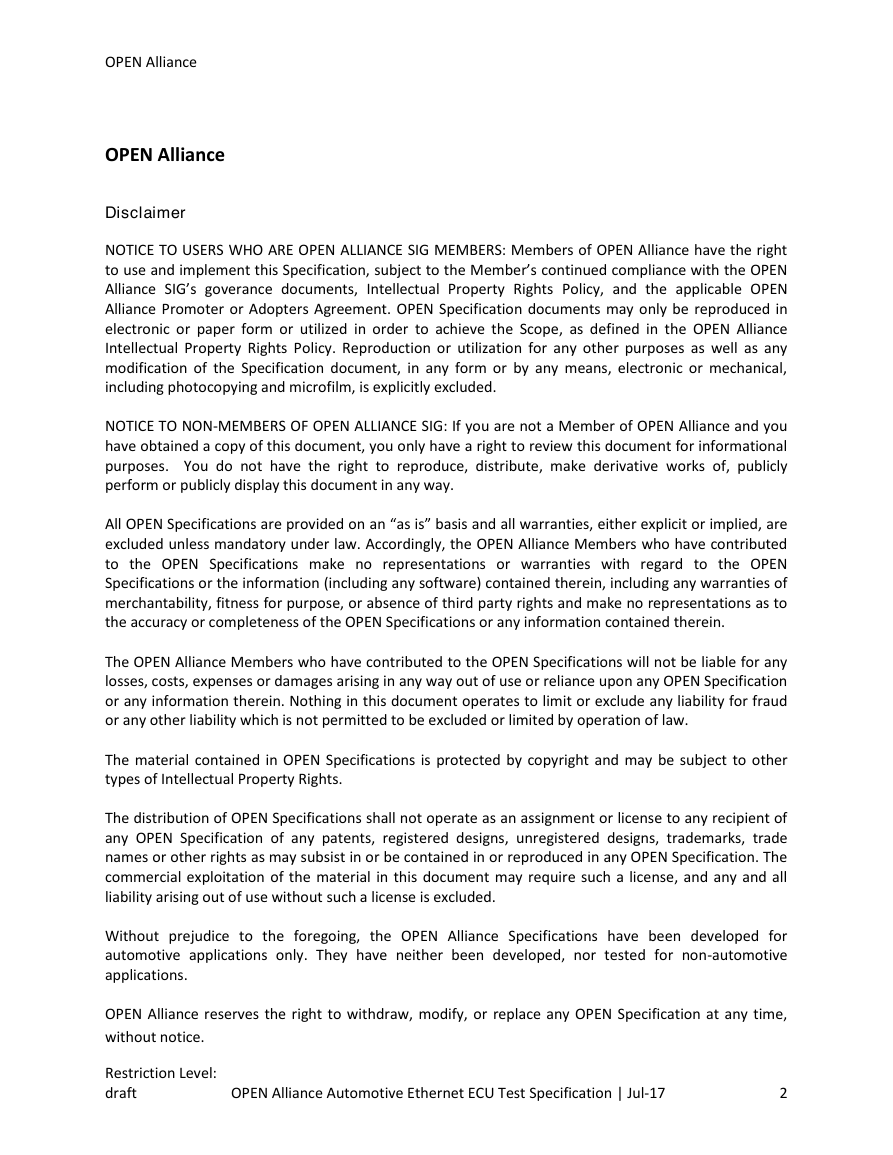
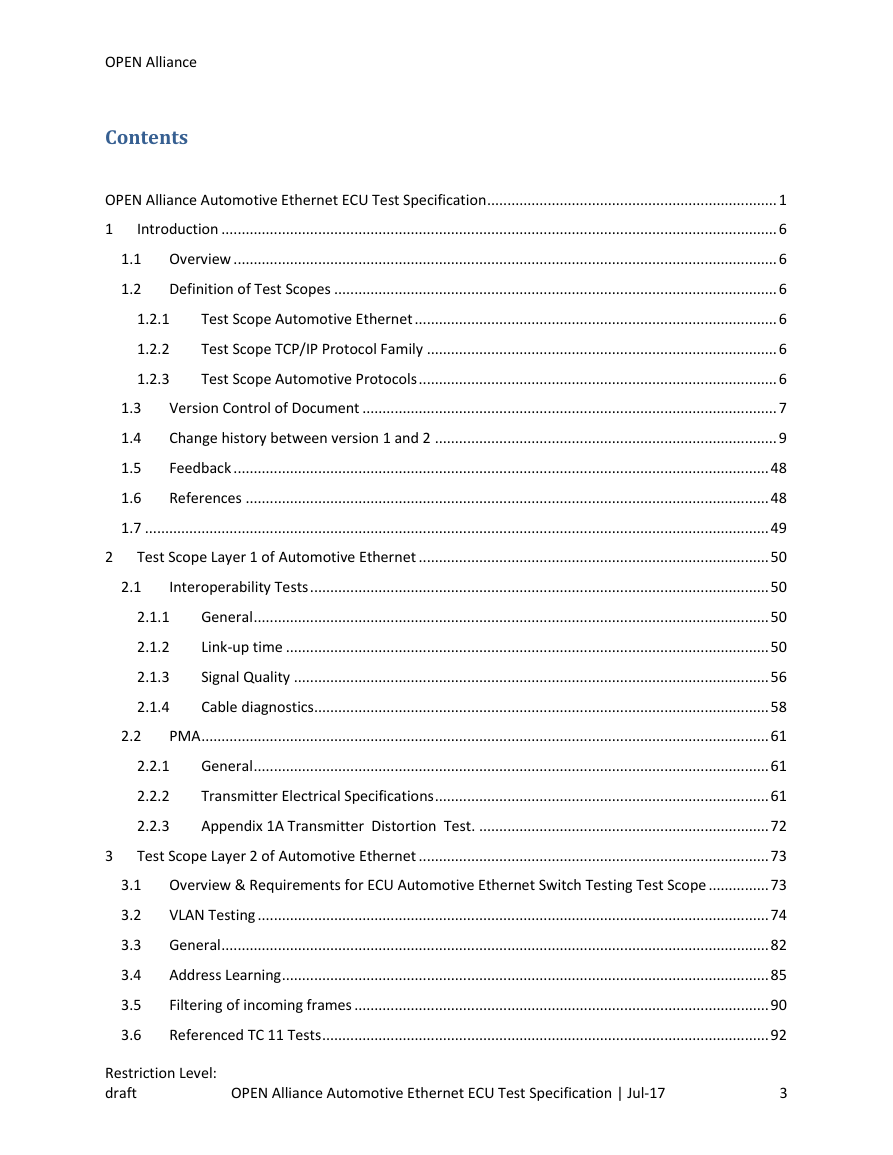
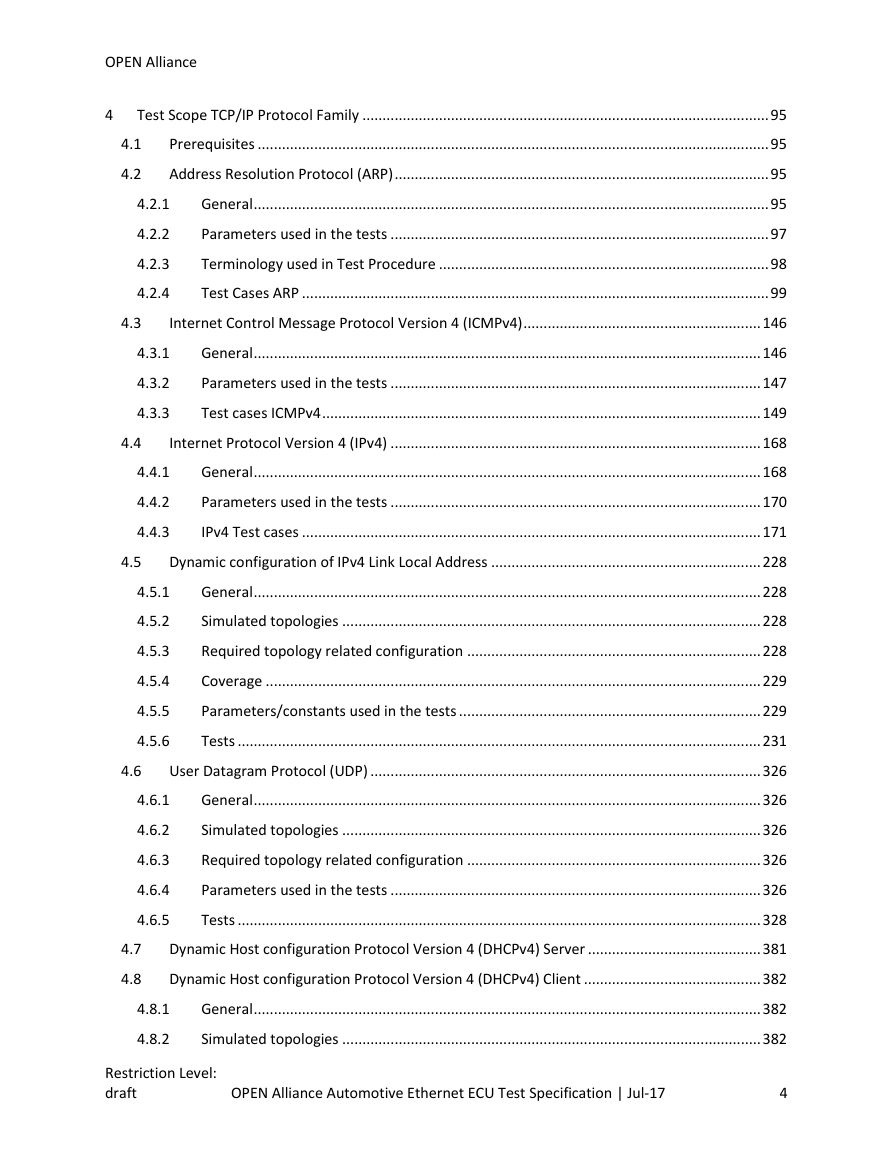
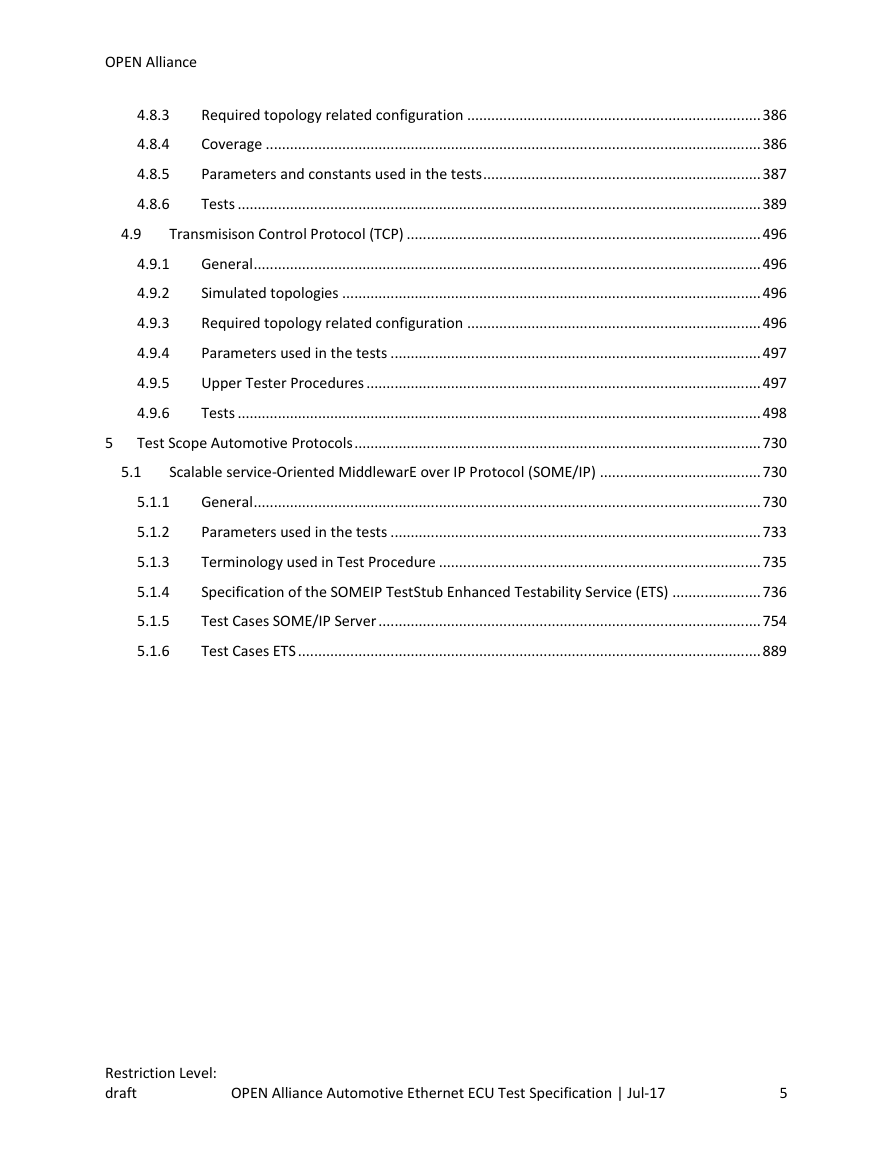
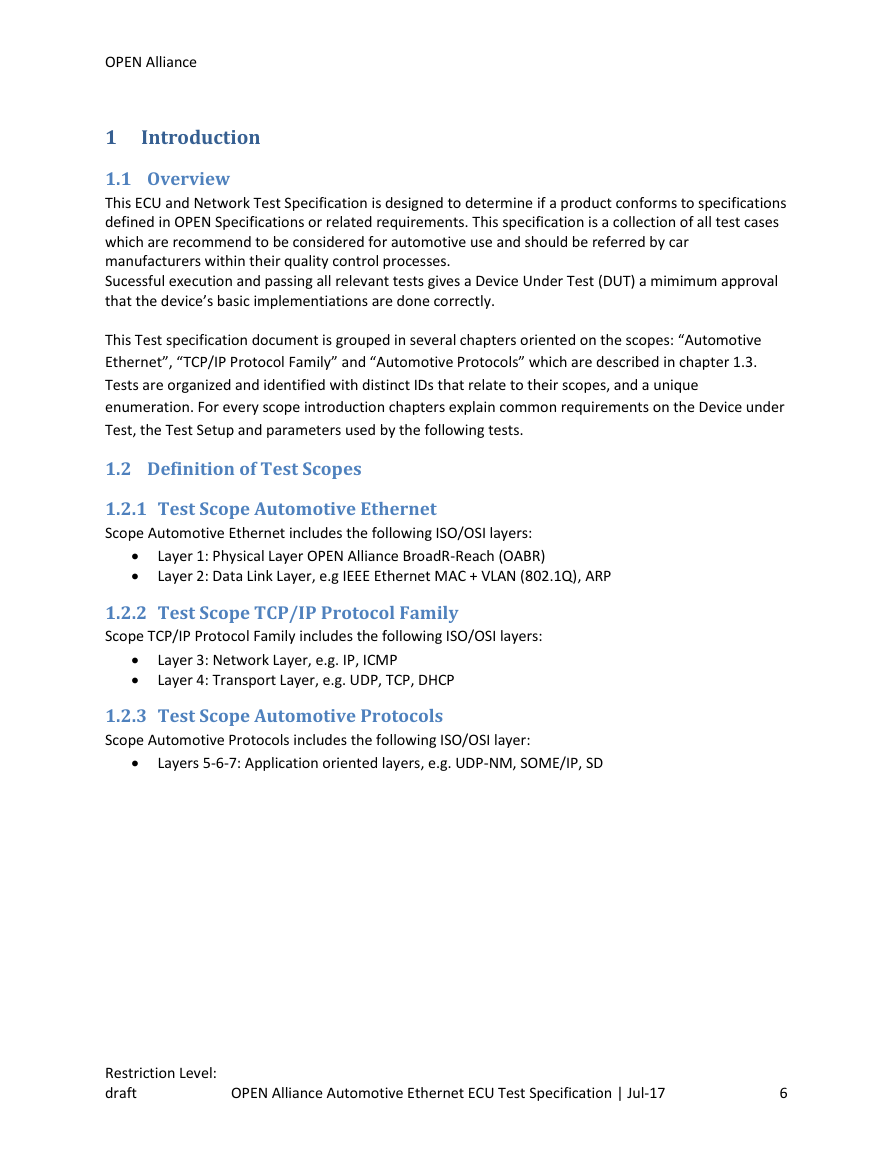
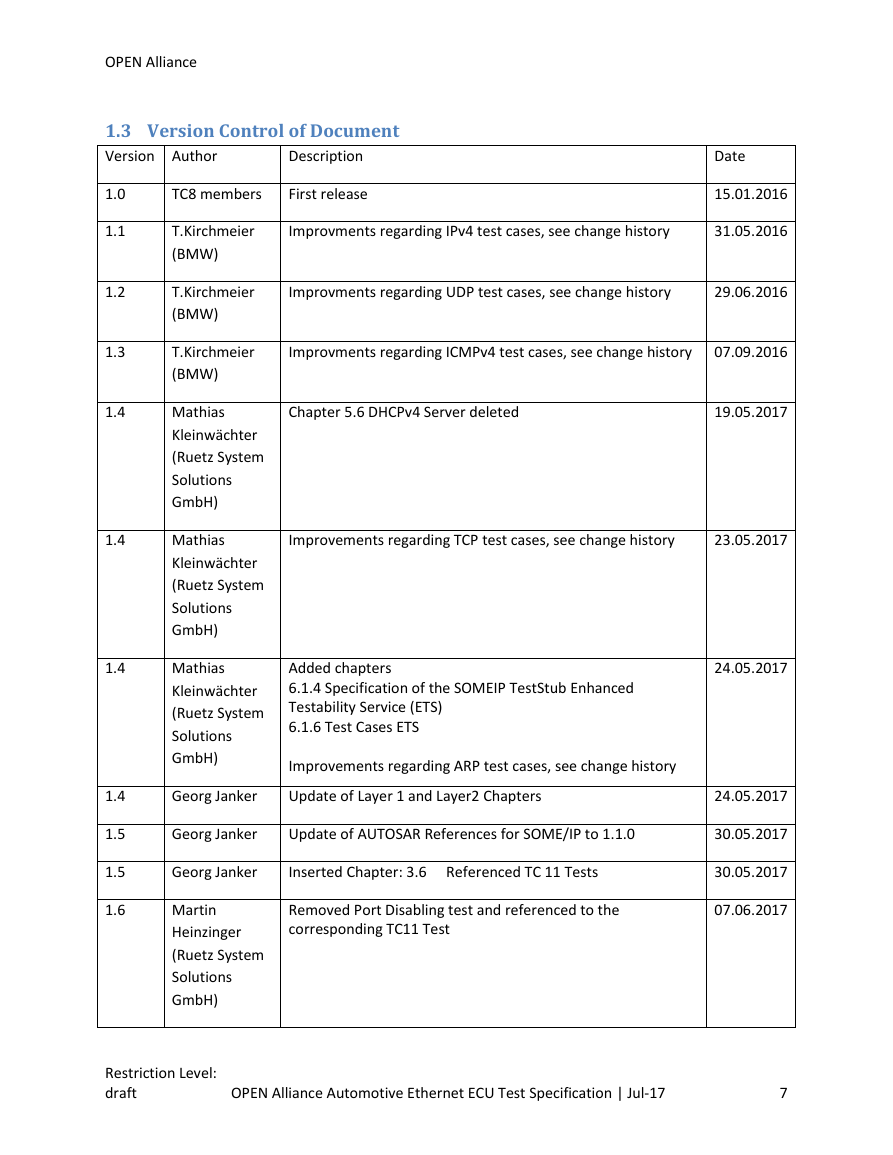
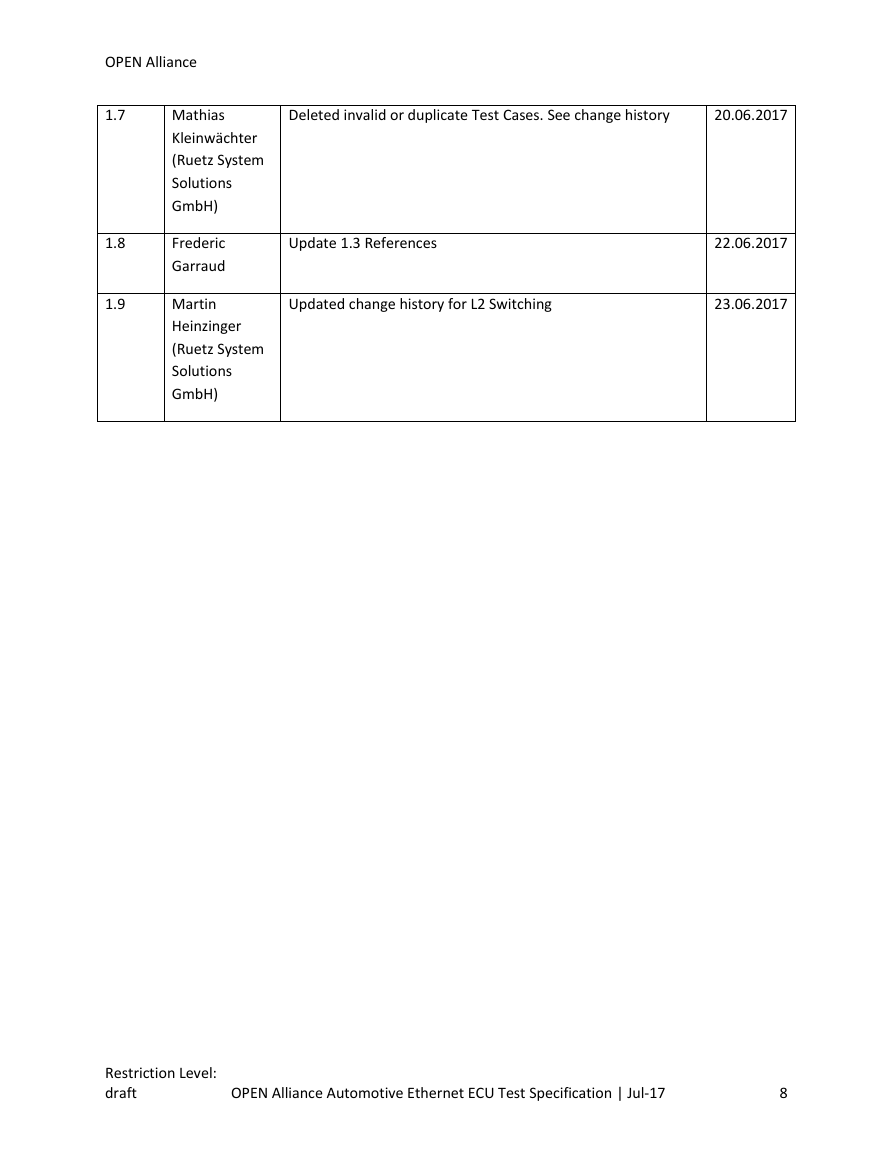








 2023年江西萍乡中考道德与法治真题及答案.doc
2023年江西萍乡中考道德与法治真题及答案.doc 2012年重庆南川中考生物真题及答案.doc
2012年重庆南川中考生物真题及答案.doc 2013年江西师范大学地理学综合及文艺理论基础考研真题.doc
2013年江西师范大学地理学综合及文艺理论基础考研真题.doc 2020年四川甘孜小升初语文真题及答案I卷.doc
2020年四川甘孜小升初语文真题及答案I卷.doc 2020年注册岩土工程师专业基础考试真题及答案.doc
2020年注册岩土工程师专业基础考试真题及答案.doc 2023-2024学年福建省厦门市九年级上学期数学月考试题及答案.doc
2023-2024学年福建省厦门市九年级上学期数学月考试题及答案.doc 2021-2022学年辽宁省沈阳市大东区九年级上学期语文期末试题及答案.doc
2021-2022学年辽宁省沈阳市大东区九年级上学期语文期末试题及答案.doc 2022-2023学年北京东城区初三第一学期物理期末试卷及答案.doc
2022-2023学年北京东城区初三第一学期物理期末试卷及答案.doc 2018上半年江西教师资格初中地理学科知识与教学能力真题及答案.doc
2018上半年江西教师资格初中地理学科知识与教学能力真题及答案.doc 2012年河北国家公务员申论考试真题及答案-省级.doc
2012年河北国家公务员申论考试真题及答案-省级.doc 2020-2021学年江苏省扬州市江都区邵樊片九年级上学期数学第一次质量检测试题及答案.doc
2020-2021学年江苏省扬州市江都区邵樊片九年级上学期数学第一次质量检测试题及答案.doc 2022下半年黑龙江教师资格证中学综合素质真题及答案.doc
2022下半年黑龙江教师资格证中学综合素质真题及答案.doc